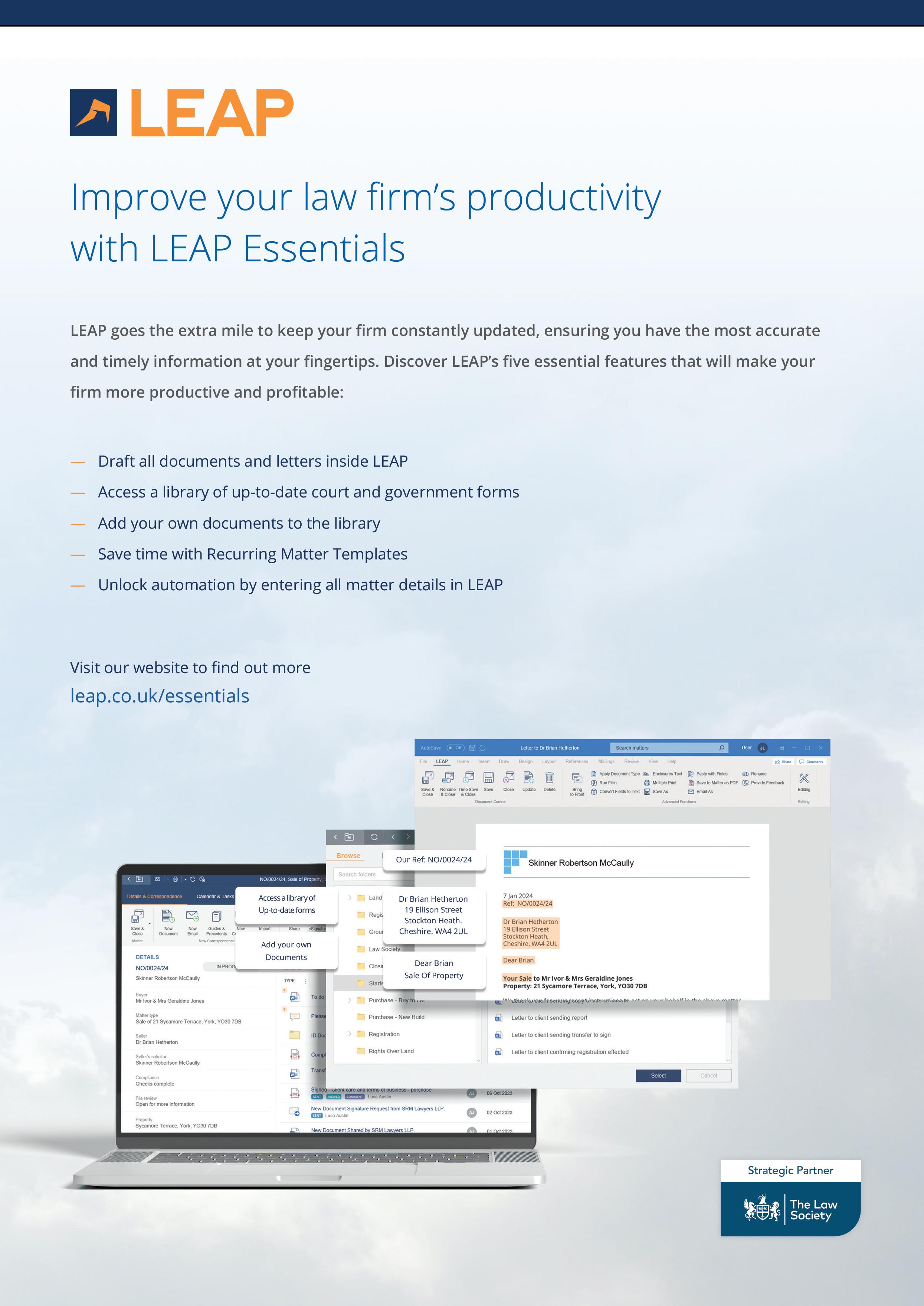


















































 Michael Frape President, Chairman Ashtons Legal LLP
Michael Frape President, Chairman Ashtons Legal LLP
This will be my final message as President. After five years as President, I am delighted to say that James Allen of Birketts will be taking on the role of President from our AGM in May. I am sure that James will do a brilliant job leading CLS into the future and I wish him well in this rewarding role.
On 19th April we will be holding the annual LEA and Dinner at King’s College. What a fantastic opportunity to celebrate the legal profession in Cambridgeshire. I am pleased to
confirm that the event is a compete sell out. Many thanks to all who entered the LEA and our generous sponsors.
All that remains is for me to say a huge thank you to all our members for continuing to support us. Most of all I want to thank our outstandingly talented committee and our wonderful administrator Penny for their unstinting efforts in making CLS the huge success it has been and will continue to be into the future.
Michael.
President
Michael Frape Ashtons Legal
Vice-President
James Allen Birketts
Honorary Secretary
Tom Fairley, Arm
Treasurer
Gary Hanson
Barristers Rep
Joshua Walters Fenners Chambers
Corporate Partnerships Officer
John Wright Woodfines
Corporate Sponsorship Officer
Fiona McLeman FM Family Law
Council Member
Michael Frape Ashtons Legal LLP
Equality, Diversity & Inclusion Officer
Scott Smith Howes Percival
In House Lawyers Rep
Anna Mortenson Nichino Europe
Junior Lawyers Division Representative
Jonathan Dattani Ashtons Legal
LEA Officer
Raina Victor Endomag
L&D Officer
Chris Hoole Appleyard Lees IP
Parliamentary Liaison Officer
Chris Thomas Appleyard Lees IP
Patent Attorneys Rep
Anwar Gilani Venner Shipley
Peterborough Rep
Umrah Buckley BSH Home Appliances
PR & Social Media Officer
Josie Beal Birketts
Publications Editor
Kate Harris Birketts
Social Events Officer
Joanna Cotgrove Ashtons Legal
Sole Practitioners and Small Firms Rep
Sophie Scotcher Myers Law
Website Officer
Charlotte Vallins Ashtons Legal Administrator
Penelope Harrington
Wednesday 1st May
AGM/Committee Meeting On Zoom 5.30pm
Friday 19th April
Legal Excellence Awards 2024
King’s College, King’s Parade, Cambridge CB2 1ST
Drinks reception from 6.30pm
Wednesday 5th June
Diversity Network Photographic Exhibition
“This is what a lawyer looks like”
Museum of Cambridge, 2-3 Castle St, Cambridge CB3 0AQ 6.00-8.00pm (Arrival from 5.30pm)
Tuesday 11th June
Networking Drinks
The Library, The Clayton Hotel, 27-29 Station Rd, Cambridge CB1 2FB 5.30-7.30pm
Wednesday 26th June
Intellectual Property and Technology event with Dr Paul Seabright followed by Networking
Cass Centre, Shaftesbury Rd, Cambridge CB2 8BS 6.00-8.00pm (Arrival from 5.30pm)
Wednesday 10th July
Garden Party
Trinity Hall, Trinity Lane, Cambridge CB2 1TJ 6.00-8.30pm
From the high street to the high court, the legal profession should reflect the society it serves. That’s why every year The Law Society help talented, aspiring solicitors from less advantaged backgrounds join the profession with our Diversity Access Scheme (DAS).
The DAS helps those with a lack of funding, industry contacts or opportunities qualify as solicitors by offering vital scholarships, mentoring and work experience.
This year, The Law Society celebrates 20 years of our DAS which has helped around 300 aspiring solicitors enter the profession.
The current DAS application cycle opened on Wednesday 28 February, and ends on Saturday,13 April.
The DAS offers three key areas of support to awardees. Financial support through the provision of scholarships to help cover the costs of either the Legal Practice Course (LPC) or the Solicitors Qualifying Examination (SQE). The scholarships are funded by generous sponsors from the legal sector, who share the Law Society’s commitment to improving diversity and inclusion in the profession.
Support through mentoring opportunities. The DAS matches each awardee with a solicitor mentor who can provide advice, guidance, and encouragement throughout the journey to qualification. The mentors are qualified practising or non-practising solicitors who volunteer their time and expertise to support the next generation of solicitors.
Lastly, through work experience placements. The DAS arranges highquality work placements for its awardees, giving them the opportunity to gain practical experience and exposure to different areas of law and practice in areas of interest to them. The placements are offered by a range of employers, from large firms and in-house legal teams to public sector organisations and charities.
Who can apply?
Awardees must be those with a strong interest in becoming a solicitor; and have completed, or are in the final year of, an undergraduate degree in law, a Graduate Diploma in Law (GDL), or have completed, or are in the final year of, a non-law degree and intend to take the SQE. There are no age restrictions to the DAS, and no barriers for those undertaking a career change to apply.
The Scheme is intended to support those that face one or more barriers to entering the profession. This could include those that come from a lowincome household, or have experienced financial hardship; those that are the first in their family to attend higher education; those who are disabled or have a long-term health condition; those with caring responsibilities; those that have experienced discrimination or disadvantage due to their ethnicity, gender, sexual orientation, religion, or other protected characteristic; and those who have faced other significant
challenges or obstacles which affected their education or career prospects.
A full list of the application criteria, including exceptional circumstances can be found on The Law Society website.
Who we are reaching
Awardee data over a five-year period has shown that The Law Society is successfully reaching the right candidates:
l 86% of DAS awardees grew up in low-income households
l 90% attended non-selective state schools
l 86% were part of the first generation of their family to go to higher education
l 31% of awardees disclosed a disability
l 44% of awardees are from Black or other minority ethnic backgrounds
How can you support the Diversity Access Scheme?
DAS is only possible because of the generous support of The Law Society's

members. As DAS enters its twentieth year, The Law Society hopes that the number of awards offered can be increased and more individuals can be supported to achieve their goal of joining the legal profession.
The Law Society wants to give the opportunity for as many individuals as possible to be supported by the DAS, but they need your help to make this happen.
If your organisation would like to support the scheme, you can make a contribution towards fees associated with completing the LPC or SQE; offer
a work placement at your organisation or mentor a student from the scheme within a particular area of law.
During 2021 The Law Society carried out a review of DAS to assess its impact and whether the scheme is working in terms of its criteria and processes. The review included evaluation interviews with existing sponsors, all of whom said that they would recommend DAS to other firms, due to a combination of:
l Excellent candidates
l The reputation of the Law Society
l Little-to-no administrative burden on the sponsors
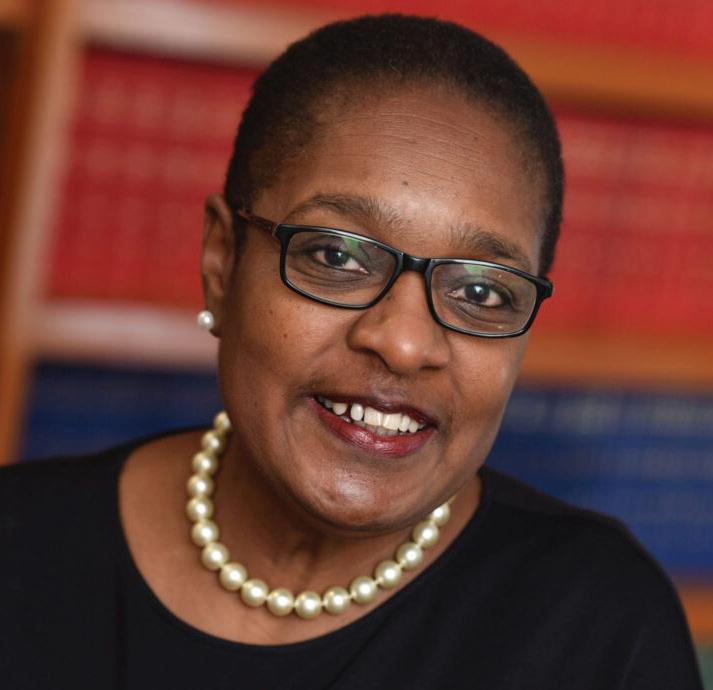
We honour the life and memory of Araba Taylor, who passed in December 2023.
Born to Ghanaian parents, Araba Taylor carved her path with determination and resilience. At school, she consistently excelled, achieving prizes for her work annually, and was also a talented musician. Following a straight-A sweep in her A-Levels, Araba went on to study law at the University of Cambridge, where she made history as the first Black Woman to attend Christ College in 1979.
Araba became a member of Lincoln's Inn in 1980, during her first year at Cambridge University. Shortly after, she received an invitation to apply for a Chancery pupillage at 1 New Square. Her exceptional performance earned her a Harmsworth Entrance Exhibition in 1981, and upon being called to the Bar in 1985, she was recognized as a Harmsworth Scholar. She commenced her Chancery pupillage, under the
guidance of Sir James Munby, in September of the same year.
Upon getting her tenancy at Lincoln’s Inn in 1987, she honed her expertise as the first black specialist Chancery practitioner. Araba joined Fenners Chambers in 2009, where she continued to distinguish herself in property, probate and public law. In 2013, she was appointed a Deputy District Judge (Civil) and, since 2017, has been authorised to sit on the specialist Chancery lists at Central London County Court.
Her practice reflected her commitment to serving others, often acting in matters of homelessness and social housing, a cause dear to her. She frequently delivered numerous solicitors’ seminars for Shelter Training and has also lectured for the Social Housing Law Association. Her advocacy extended beyond her legal career into her personal life; where she was a trustee member for Just Us, a local homelessness charity, taking part in her first sponsored sleepout in 2018.
Araba’s legal acumen, combined with her faith, propelled her into numerous ecclesiastical roles of great
l A rigorous application process managed by experts
The combination of a strong eligibility criteria – that is inclusive and flexible – with a rigorous application process meant the sponsors were confident that DAS receives high-quality candidates that are deserving of financial and other career support.
Should you wish to find out more information about the DAS, applying to or supporting the scheme, please get in touch at diversityaccessscheme@ lawsociety.org.uk
responsibility. Following an MA in Canon Law, her appointment as Deputy Chancellor of the Diocese of Southwark in 2021 marked a historic moment, underscoring her pioneering spirit and unwavering dedication to justice. Additionally, she served as Deputy Commissary General and Deputy Vicar General for the City and Diocese of Canterbury, embodying the intersection of her faith and legal advocacy.
Araba Taylor leaves behind a profound void in the legal community, but her legacy will endure as a testament to the transformative power of dedication, compassion, and perseverance. She will be deeply missed and fondly remembered by colleagues, clients, friends, and all those who had the privilege of knowing her.
Fenners Chambers
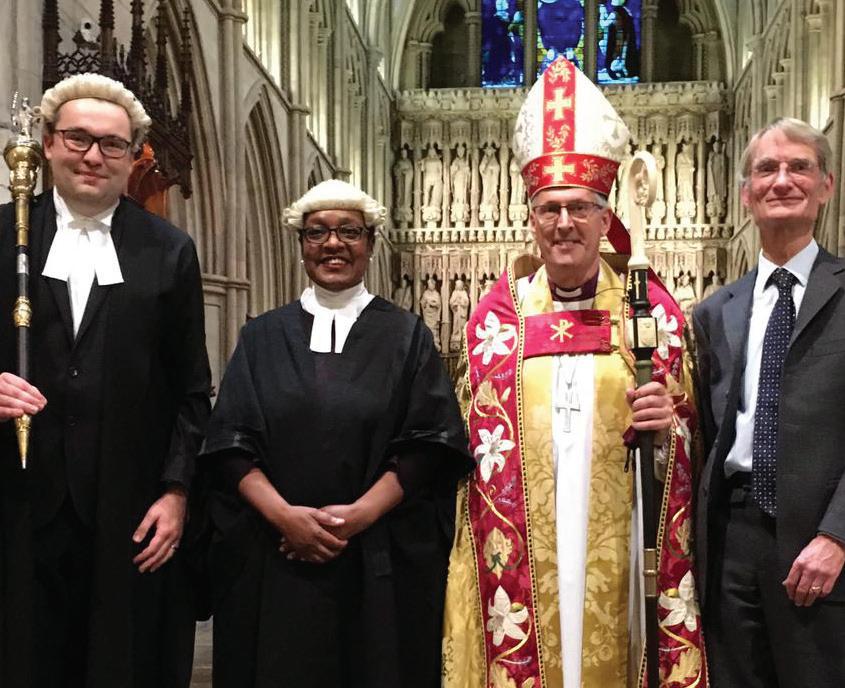
The Women in Law Pledge asks organisations to commit to seeing gender balance at all levels across the legal profession, tackling the gender pay gap and other inequalities that still affect women in law today.
Since the Pledge was launched in 2019 in partnership with the Bar Council of England and Wales and Chartered Institute of Legal Executives (CILEx), there have been positive signs of progress. Workplaces have started analysing their pay gap data in greater detail and publishing further data on partner pay. Steps have also been taken to ensure the gender diversity of newly appointed partners through recruitment/promotion targets and creating action plans to address inequality.
However, we must continue to work collectively to enact positive change for gender equality in the profession.
Women make up 53% of the practising profession and women partners increased by 1.9% reaching 9,101 in 2022, continuing the steady growth over the past few years. Despite this, women continue to experience barriers when attempting to reach senior levels.
Unfair allocation of work, unfavourable promotion structures, unacceptable work-life balance, and the lack of visible senior women role models are just some of the areas that need addressing if we want to see women in law thrive.
The Pledge, now in its fourth year, currently has 51 signatories committing to gender equality and inclusion through the setting of high-level targets for gender equality, either within organisations, or as champions for change.
The eight commitments ask the profession to support to the progression of women into senior roles by developing a clear action plan to achieve equality at these levels and to tackle workplace culture and bias that potentially results in differential outcomes for different groups of women at all levels.
These do not have to be policies or practices currently in place but should include those that signatories wish to implement.
Current signatories report that the Pledge has assisted with securing senior leadership support and acted as a catalyst for change for gender equality and increasing gender representation at the senior levels.
Signatories benefit from a wide support network in which they can collaborate and share best practice to progress their gender equality plans. We hold two virtual thematic roundtables per year which focus on key issues facing women in the profession and different aspects of the Pledge.
We will release our first annual Pledge report in 2024 which will highlight the progress made within the profession.
How can you support the Pledge?
By upholding the Pledge principles through the work that you do and by acting as champions for the Pledge, we can collectively push for lasting positive change for women solicitors and a workplace where everyone feels valued, respected and safe.
If you or your firm is interested in signing up to the Pledge or would like a speaker from the Law Society/Womens Solicitors Network Committee to attend and support any of your events, please contact diversityteam@lawsociety.org.uk for more information.

SAMANTHA MCLEISH
Diversity and Inclusion Adviser at the Law Society of England and Wales;
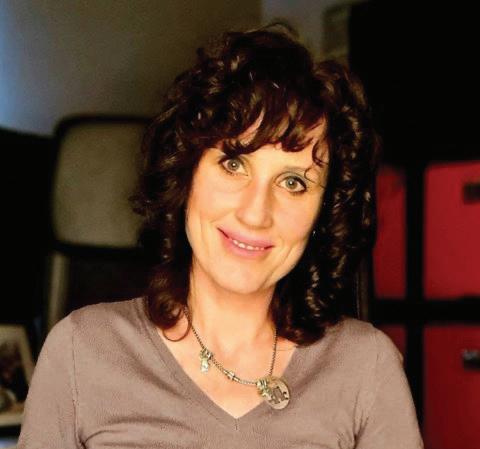
CHANTAL DAVIES
Professor of law, equality and diversity and director of Forum for Research into Equality and Diversity at University of Chester School of Law and Women Solicitors Network Committee member;
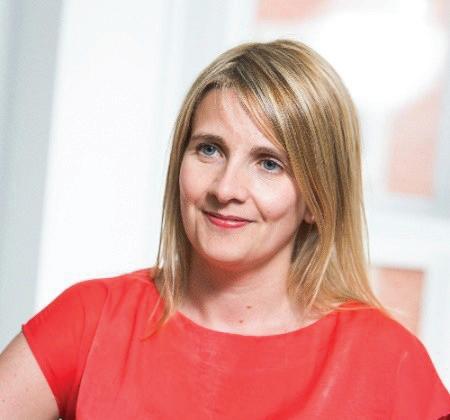
... we must continue to work collectively to enact positive change for gender equality in the profession
LIZ TURNER
Head of legal at Sophian Limited and Women Solicitors Network Committee member.
 Michael Frape Law Society Council Member for Cambridgeshire and Peterborough, Chairman Ashton Legal LLP
Michael Frape Law Society Council Member for Cambridgeshire and Peterborough, Chairman Ashton Legal LLP
The current three year strategy will come to an end in October 2025, which also happens to be our bicentennial year (see below). It has four objectives which are to promote the legal profession, protect the justice system, maximise TLS’s potential by growing its commercial operations and being an employer of choice.
Planning for the 202528 corporate strategy is already well under way. TLS Council held a strategic planning event in March, which considered the findings of a membership survey a PESTLE analysis (Political, Economic, Social, Technological, Legal and Regulatory and Environmental) and a review of the Legal Services market in 2023. One thing that stood out to me was the dominance of the top 200 law firms in the provision of legal services. They employ more than half PC holders and in 2023 contributed £22 billion of economic activity out of £41 billion turnover of legal activities in the UK. When you consider that in January 2024 there were 9,339 law firms in the UK, it shows the concentration of economic activity in a relatively small proportion of firms.

£127.9M of which TLS receives about £35.1M and the SRA about £67.6M. The balance goes to the Compensation Fund. The big issue for TLS to face is why solicitors should be compelled to pay a proportion of the PC fee to their professional body. Should that not be a voluntary matter?
For some years, there has been a debate about what to do with 60 Carey Street. This is TLS President’s official residence in London, which has also been used in the past to entertain important guests. The property had become under-used in both roles for some time and has become quite run down due to lack of investment. There has therefore been a debate about whether to sell the property or invest in it at great expense. A decision has now been taken to choose the latter option.
Council members considered TLS’s budget and financial challenges as well as gave feedback on the annual Practising Certificate Fee consultation. Every year TLS consults the profession about the level of PC fee and what proportion it should receive. Council approves the recommendation in July which is then submitted to the Legal Services Board, which determines the final figure. This exercise is of course linked to TLS’s budget-setting exercise. In 2023-24 the PC fee is £307 (plus the Compensation Fund contribution of £30). That equates with a total of
Council also considered the “Get Involved” programme, which is intended as a means by which solicitors can contribute to TLS’s work as volunteers. This already happens but will make it easier and more rewarding to contribute and the initiative has great potential to tap the potential of solicitors to contribute their time, skills and experience to the objectives of TLS.
2025 will mark the 200th year since TLS was founded in1825. Plans are well under way to celebrate this milestone in TLS’s history.
In February 2020, a fire destroyed much of 114 Chancery Lane. 114 forms part of TLS’s headquarters in Chancery Lane, the main building being 113 Chancery Lane. Regrettably there has been considerable delay on the part of TLS in progressing repairs to 114, but it appears that good progress is now being made with repairs to the property.
Amerdeep Somal has taken over the role of Board chair from Robert Bourns. The Board is responsible for overseeing the strategic direction of TLS and the work of its executive leadership team. The Board reports to Council, which is TLS’s governing body. Amerdeep has already made her mark by facilitating the Board’s decision on 60 Carey Street.
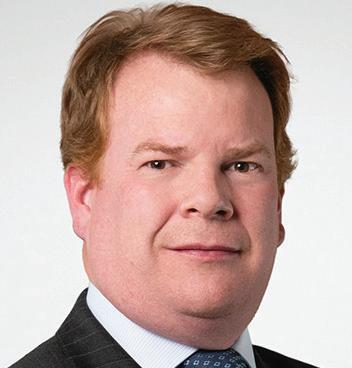 Stephen Hodsdon Partner, Patent and Trade Mark attorney, J A Kemp LLP
Stephen Hodsdon Partner, Patent and Trade Mark attorney, J A Kemp LLP
In the knowledgedriven economy that underlies much of Cambridge’s success, intellectual property (IP) rights are extremely valuable business assets. However, while companies spend significant amounts of time and money obtaining IP rights in the first place, often much less emphasis is put on looking after those rights once they are obtained, with the result that the value of those rights can be diminished or even lost. This article highlights some of the areas where “good housekeeping” can avoid time and money being wasted.
All registered IP rights (e.g., patents, trade marks and designs) need to be ‘maintained’ by payment of renewal fees (also referred to as ‘annuities’ or ‘maintenance fees’). However, it is the owners’ responsibility to ensure timely payment of these fees (and the payment of the correct amounts); most patent offices do not routinely inform owners in advance of payments being due.
To complicate matters further, different IP rights have different renewal periods.
For patents, fees typically need to be paid annually (although in the US they are due at four-year intervals). For trade marks, the period is normally every 10 years (which can be easily forgotten in the intervening period). For designs, the period varies considerably around the world, although typically falls between the above periods, for example every five years in the UK and Europe.
A granted IP right is likely to be of little value if third parties can infringe it with impunity.
opportunists to use the information available from public registers to solicit payments from rights holders. Such approaches are often presented in a manner that suggests that the communication is from the patent office itself, sometimes illegally so. At best, these approaches will seek payment of vastly inflated sums to pay the required fees. At worst, they will not even pay the required fee, but will instead offer a worthless service relating to the right, such as publication in an unofficial register or journal, still at an inflated price.
Fortunately, grace periods for late payment of renewal fees are usually available, meaning that it is hard to irrevocably lose rights this way. However, using these can come at a steep cost, often requiring the payment of an additional 50 per cent on top of the missed fee.
An unfortunate consequence of the fact that patent offices do not routinely remind owners of the deadlines for payment of these fees is that it provides an opening for unscrupulous
The simplest way for most companies to manage renewal payments is to delegate the responsibility for monitoring, reminding and paying the fees to a service provider. A number of specialist providers exist in this field and most patent attorney firms will either offer these services or contract them to one of these providers. Using a third-party provider to manage these payments can also help distinguish scams and provide a useful point of reference to check the validity of any unsolicited correspondence.
A granted IP right is likely to be of little value if third parties can infringe it with impunity. However, the enforcement of IP rights against potential infringers is almost entirely the responsibility of the proprietor. Even where infringement falls within the remit of government agencies (such as Trading Standards and the Border Force in the UK), they
rarely have the resources to handle any but the most serious, substantial and obvious cases of counterfeiting, and even then, will often only do so with the direct involvement of the rights owner.
IP litigation has a reputation for being expensive, but the cases that reach the courts are very much the ‘tip of the iceberg’. Far more cases settle, often simply as a result of the existence of the IP right being brought to the infringer’s attention. Acting swiftly and contacting potential infringers as soon as they are noticed can often stop the infringement quickly and at a relatively low cost, particularly if the infringer has made minimal investment in the infringing product or brand. By contrast, delay can lead to infringers having much more to lose by giving in and therefore being prepared to expend greater effort in contesting any allegation of infringement.
However, in some countries (including the UK), accusing another company (or individual) of infringement, even verbally, can give rise to potential counterclaims. Consulting a specialist before making such accusations is therefore strongly recommended.
Another aspect of policing IP rights is preventing third parties from obtaining their own, conflicting, rights. Registered trade marks are particularly affected by this. In many countries, including the UK and across Europe, patent offices will not take any action to prevent the registration of a subsequent application which might conflict with an existing registration. Instead, it is left to the owners of earlier registrations (or unregistered rights) to take such action, on the basis that objections will only be raised where owners consider that there is commercial conflict between the marks.
There is, fortunately, a simple solution to this, which is to arrange for a watching service. This will automatically monitor new applications in selected countries (or even worldwide) for marks which are potentially similar to the company’s registrations and flag up potential conflicts, allowing the option to oppose the new application based on existing rights.
Having registered a trade mark, it
is important that the mark is used in the countries where the mark is registered, both in the form that it was registered and in relation to the goods and services that were covered by the registration.
Failure to do so within a set period (which varies by country but is typically between three to five years) can leave the registration vulnerable to revocation in whole or part for ‘non-use’. Such ‘non-use’ can also make it impossible to oppose a subsequent application to register the same or a similar mark.
IP litigation has a reputation for being expensive, but the cases that reach the courts are very much the ‘tip of the iceberg’
Until recordal has been completed, the transaction may be ineffective in law, for example not permitting an assignee (or licensee) to enforce the right without the involvement of the registered owner. Some local laws also impose further penalties for undue delay in the recordal of transactions, such as reducing the ability to claim for costs or damages in successful infringement actions.
As a result, it is important to keep records of relevant use in all territories where a mark is registered. The exact form of such records will vary depending on the mark and the goods and services being provided but may take the form of copies of catalogues, brochures, sales records, invoices or marketing material. To be of value, such records should also be dated, otherwise they are liable to be ignored. It is often helpful to be able to identify, at least at a broad scale, revenue or sales volumes associated with specific goods or services.
For unregistered rights such as copyright, good recordkeeping can be essential to prove the existence of the right at all. As the point at which the right needs to be relied on can often be several years (or indeed decades in the case of copyright) after the creation of the right, it can be extremely difficult to prove the requirements for existence and ownership if contemporaneous records are not available.
Throughout their lifetimes, IP rights will often be the subject of legal transactions, in particular transfers and assignments, licences and use as security. However, while such transactions create beneficial ownership or rights in the underlying IP rights, they will only be fully effective when they are recorded with the various IP offices at which the rights are registered.
It is also important to ensure that changes of name and, in particular, addresses of proprietors are recorded with patent offices. While failure to record a change of address rarely has official consequences, it can result in official correspondence, such as a notification of a revocation action, or of an unpaid renewal fee, to be missed because they have been sent to the wrong address and not forwarded.
Many countries will record transactions on simple application from the right holder. However, others will require evidence of the transaction, possibly with a translation, and may also require other formalities to be completed before registration is allowed. The formal requirements for recordal can also vary considerably regarding, for example, whether ‘wet ink’ signatures are required and whether the assignee or licensee is also required to sign the transaction. It is therefore advisable to seek the advice of local attorneys (or attorney firms who specialise in the recordal of transactions in a wide range of jurisdictions), possibly in advance of the transaction being completed.
Furthermore, in many cases, any evidence provided to support the recordal of the transaction will become publicly available, which may be undesirable if the transaction forms part of a wider transaction. If this is the case it may be preferable to prepare, sign and record a ‘confirmatory’ document that meets the necessary formal requirements, but excludes the sensitive commercial detail.
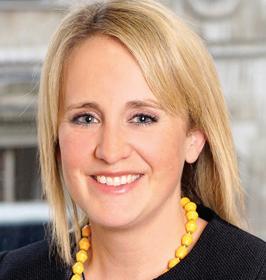 Kate Harris Editor, Legal Director Birketts LLP
Kate Harris Editor, Legal Director Birketts LLP

Appleyard Lees appoints new Partner Appleyard Lees is delighted to announce that patent attorney, Paul Beynon (MEng, CPA, EPA), joined the partnership on 1 April 2024. Paul acts for many of Appleyard Lees’s biggest clients in the engineering and electronics sector.
On his promotion to partner, Paul said, “I’m delighted to have this opportunity to join the partnership at Appleyard Lees. From the moment I started at Appleyard Lees back in 2018, I knew it was the place for me. Working with and achieving success with some fantastic clients has been a privilege. In addition, supporting our next generation of attorneys through our trainee programme, has been a real pleasure. I’m very grateful for all of the support I have received over my career. I am excited to continue working with innovative clients, both new and existing, as partner alongside such dedicated and experienced attorneys and solicitors.”
Speaking on Paul’s promotion, Bobby Smithson, Managing Partner, commented, "Paul’s outstanding attitude and level of commitment along with his natural “client first” approach makes him a perfect fit at Appleyard Lees. On top of his excellent work with clients, Paul’s effort and energy in supporting the professional development of junior colleagues speaks volumes about him as a professional and a leader. I am thrilled that Paul is joining the partnership.”
Fenners Chambers welcomes new members

Aelred Hookway is a highly experienced barrister having spent over 30 years specialising in all aspects of family law, public law, private law children and finance; now focusing solely on private law children. In addition, Aelred has presented many
Here is a round-up of the latest moves, promotions and achievements of Cambridgeshire Law Society’s members…
seminars on various aspects of children law and has appeared in a number of reported cases.
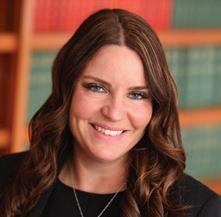
Samantha Marsh brings with her over a decade of experience as a dedicated criminal higher court advocate and a proven track record of managing highvolume client caseloads and delivering positive outcomes. Her extensive legal knowledge and meticulous attention to detail make her an asset to the Fenners team, as she takes on a new challenge at the Bar.
Birketts elects Chris Schwer as new Senior Partner and announces the promotion of ten new partners
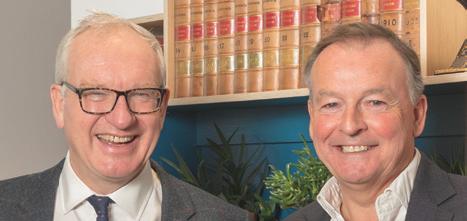
Birketts has elected a new Senior Partner, with the firm’s UK Head of Property, Chris Schwer (right), to succeed James Austin (left). Chris took up the Senior Partner position on 1 April 2024.
Having trained at Birketts between 1986 and 1988, and returning to join the firm in 2000, Chris became Head of Property in 2005. He specialises in all aspects of commercial property matters, acting for many of the East of England’s leading investors, developers, landlords, tenants, funders, and charities.
On his election to Senior Partner, Chris said: “During my time at the firm, I have taken pride in mentoring and assisting colleagues in their careers at Birketts. When taking on the role of Senior Partner, a key focus area will be on encouraging social mobility, and promoting the various avenues that exist for those from all walks of life to get into the profession.”
Birketts has also announced the promotion of ten new Partners to the
firm’s Partnership, 70% of whom are female, bringing the firm’s total female representation in the Partnership to 41%. Of the new Partners, Patrick Cooney (Construction), Emily O’Donnell (Private Client Advisory) and Kate Harris (Private Wealth Disputes) are all based in the Cambridge office.

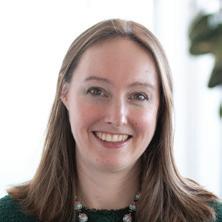
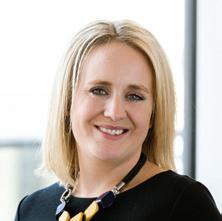
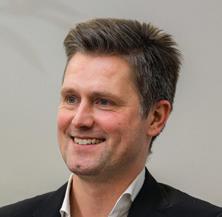
Ben Fox is a Full Member of ACTAPS (the Association of Contentious Trust Probate Specialists) and joined the firm after heading up the Contentious Probate team at Ellisons. Ben has extensive experience in this complex area of law and is able to advise on all aspects of Wills, Trusts and Inheritance Disputes, including cross-border and offshore mandates. Ben and his team are determined to build on the reputation of the Contentious Probate team within the Cambridge area.
Howes Percival appoints new Legal Director
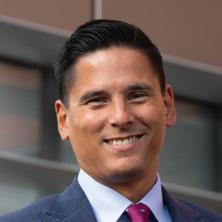
Ollie Flowers has been appointed as a Legal Director in Howes Percival’s rapidly growing Corporate, Commercial and Banking team in Cambridge.
Ollie said “joining Howes Percival presents an exciting opportunity to continue my passion for corporate law within a dynamic and esteemed firm. I am eager to contribute my expertise to the team and further enhance Howes Percival’s reputation for delivering exceptional legal services. The firm’s commitment to excellence aligns perfectly with my own values.”
 Kate Harris Editor, Legal Director Birketts LLP
Kate Harris Editor, Legal Director Birketts LLP
Birketts and Mills & Reeve advise Anglia Ruskin University on Writtle merger
Established in 1893, Writtle University College, now known as ARU Writtle, has particular expertise in the areas of agriculture, horticulture, equine and canine studies, and animal management.
The merger, that completed on 29 February 2024, is a move that enhances ARU’s offering in Chelmsford and complements its existing programmes. ARU, recently named the Times Higher Education University of the Year 2023, will develop and extend the education and research opportunities at ARU Writtle. This campus will also be home to the new further education college, Writtle College, which will continue the current 16-18-year-old provision and provide courses for adult learners.

We are continuing to celebrate the successes of our member firms and to bring you news of the biggest deals and wins from across the County. Here’s what’s been going on this quarter…
milestone in our history. We’re delighted to have merged with Writtle University College, and together we will build on their excellent reputation and vision to achieve sustained growth in Higher and Further Education.”
Birketts’ Private Wealth Disputes Team secures High Court victory in Will Validity Dispute
The trial of Leonard v Leonard [2024] EWHC 321 (ChD) was held in the High Court between 28 November 2023 and 12 December 2023 and concerned the validity of the purported final Will of Dr Jack Leonard. The Claimants, represented by Birketts, were the biological children of Dr Leonard, and contended that the purported final Will was invalid on two grounds: lack of testamentary capacity and lack of knowledge and approval. The Claimants therefore argued that Dr Leonard’s previous Will, executed in 2007, should be considered his final Will and admitted to probate.
“With the number of contested Wills increasing in England and Wales, this judgment provides a comprehensive summary of the court’s approach to medical expert evidence and the operation of the legal test for testamentary capacity. It also serves as a vital reminder to solicitors of the precautions they should always take when receiving instructions from elderly or vulnerable clients.”
Mills & Reeve advise on first artwork traded on new stock exchange
The artwork, ‘Three Studies for a Portrait of George Dyer’, was painted by Irish artist Francis Bacon in 1963. It was sold at auction in May 2017 for $52 million. The painting is a triptych and shows Bacon’s lover, Dyer, from different angles in three paintings side by side. It's a series of five Dyer portraits and was offered to investors at share price of 92.20 Euros, valuing the piece at $55 million.
Dwight Patten, Partner in Birketts’ Commercial Property Team, led the wider Birketts team and was supported by colleagues in the Property Litigation, Planning and Environment, Construction and Engineering and Corporate Tax Teams to provide ARU with a comprehensive range of real estate advice and negotiations in connection with the property aspects of the merger deal while Mills & Reeve corporate partner Poppy Short headed up the team advising ARU in connection with the regulatory processes to transfer the higher education function of WUC to ARU and the further education provision to a wholly owned subsidiary of ARU, with designated status.
On 20 February 2024, Mrs Justice Joanna Smith DBE held that Dr Leonard did not have testamentary capacity at the time the purported final Will was executed, and that he did not know and approve of the contents of this Will. Mrs Justice Joanna Smith DBE therefore pronounced in favour of the earlier Will and against the force and validity of the purported final Will.
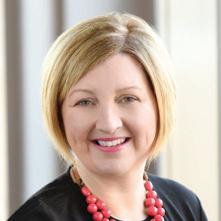

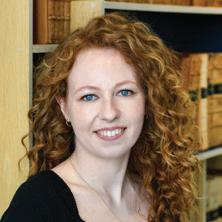
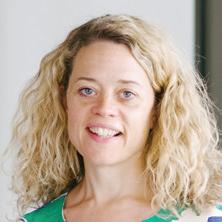
Professor Roderick Watkins, Vice Chancellor of Anglia University, said: “This is an exciting time and a significant
Bernadette Baker, Kate Harris and Anna Lambert made up the Birketts’ team and said “we are pleased to have been able to successfully represent Dr Leonard’s biological children in this claim. This judgment finally draws a line under what has been a very difficult time for the family.
Artex, which was co-founded in 2020 by art enthusiast Prince Wenceslas of Liechtenstein, operates a secure and liquid art shares exchange, regulated by the Financial Markets Authority of Liechtenstein. Its launch is designed to make art investing more accessible in a traditionally exclusive fine art market, by allowing people to buy shares for as little as $100.
Prince Wenceslas said: "We are very proud to announce the success of this final step towards the trading of a work of art, a first in art history. The strong interest shown by qualified investors over the last couple of weeks is a major mark of confidence in our new, regulated and accessible art focused multilateral trading facility."
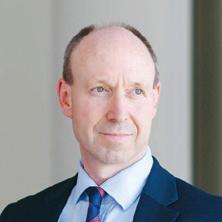
Mills & Reeve partner Michael Aubrey led the team advising on the deal.

I’m Umrah. My journey as a qualified solicitor began at Taylor Rose TTKW in Peterborough where I worked for several years. In March 2020, I made the “big move” to an in-house role at BSH Home Appliances Limited. Transitioning from private practice to an in-house role was undoubtedly a nervewracking decision, but I can confidently say it's been a journey without regrets!
I was born and raised in Peterborough and I still live here, despite my office being based in Milton Keynes; I’m very grateful for hybrid working! So, in true keeping with my
Fenners Chambers in Cambridge had the honour of welcoming Attorney General Victoria Prentis KC MP on Thursday, April 29th.
The occasion was marked by a reception and discussions on topical issues. Attorney General Prentis devoted her time to engage with those members of chambers in attendance, offering a unique opportunity for dialogue with barristers at all levels, ranging from pupillage to senior ranks.
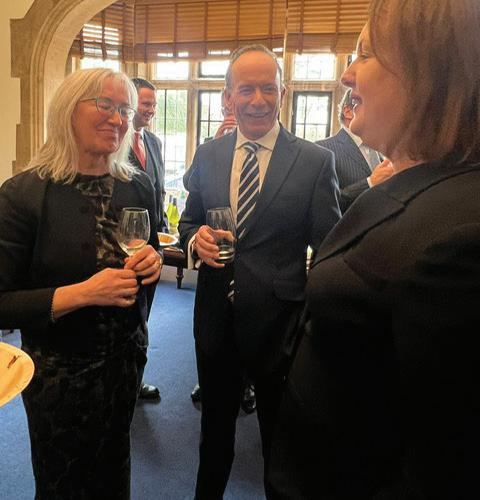
During her visit, Attorney General Prentis offered valuable insight into her pivotal role and the accompanying responsibilities. This laid the groundwork for an open dialogue on pertinent legal matters, with members seizing the chance to pose questions. Discussion covered diverse topics such as the legal status of post office workers, mental health funding, and the Attorney General's stance on the Human Rights Act.
Reflecting on her visit, Attorney General Prentis remarked, "It was a pleasure to visit Cambridge today and meet with local barristers on the South Eastern Circuit. It is always a pleasure to hear from people working on the front line of the justice system."
Fenners Chambers expressed its delight in welcoming Victoria Prentis KC. Senior Clerk, Paul Green, said “We are grateful to the Attorney General Prentis for her visit and the insightful discussion. It was an honour to host her at our Chambers, which is currently celebrating its 50th year of practice.”
roots, I joined the Cambridgeshire Law Society last year as the Peterborough Representative. Prior to this, I was the Honorary Secretary of the Peterborough & District Law Society. Following its merger with CLS, my role was created to promote the presence of CLS within the Peterborough area. I hope to effectively bridge the gap between CLS and its new Peterborough members, facilitate connections and promote collaboration between the two communities. This is an exciting challenge which I look forward to tackling. There is lots of work to be done here, so please do reach out and get in touch if you have any ideas!
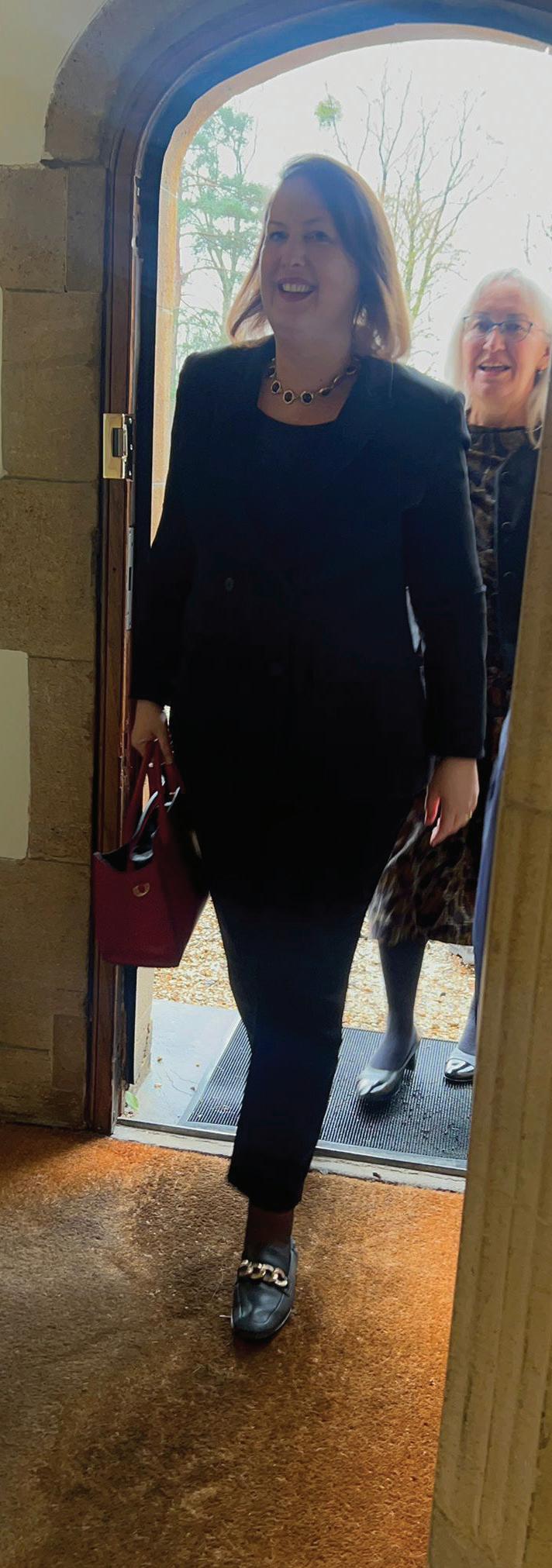
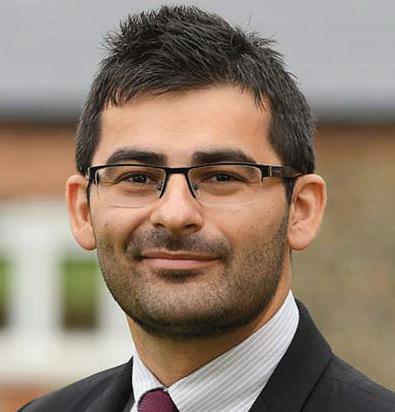 Jonathan Dattani President of the CJLD Solicitor, Ashtons Legal LLP
Jonathan Dattani President of the CJLD Solicitor, Ashtons Legal LLP
The Cambridgeshire Junior Lawyers Division host monthly events as an opportunity for legal professionals living or working in Cambridgeshire to meet each other. We welcome individuals whether they are studying law, working in law or even have an interest in the legal world.
Our membership includes a variety of trainee solicitors, paralegals, licensed conveyancers, legal secretaries, CILEx Lawyers, students and solicitors.
We remain keen to run events that can handle a mixture of smaller and larger numbers of attendees and cater for wider interests.
We held our “Welcome Back Drinks” in January, where we had over fifty attendees for catchups and introductions between the new committee and new and veteran members alike.
Our February event was a trip to the Bowling Alley, where legal professionals caught up over a few strikes!
For March, we held our very own “Cork and Canvas Painting” event where our junior lawyers demonstrated their artistic abilities by painting their interpretations of Monet’s ‘Water Lillies.’
A special thanks to Penny of Cork & Canvas Cambridge for being our guide for the evening, and to Ashtons Legal for the venue along with the pizza and prosecco!
We are excited to hold our first “Sushi Making” at YO! Sushi School on 16 April 2024, and details will be sent to our mailing list imminently.

 Megan Simpkins CYPG Committee member, Solicitor Birketts LLP
Megan Simpkins CYPG Committee member, Solicitor Birketts LLP
The Cambridge Young Professional Group hosted their third event of the year on 4 April 2024, with an evening of curling (yes, the winter sport).
The event was held at the Cambridge Ice Arena and started with a coaching session to learn the basics once everyone had their gripper shoes on and curling brooms at the ready. After the coaching session, the games commenced (closely supervised by an instructor because, let’s face it, we were never going to be good enough to be let loose on the ice on the first attempt).
The attendees were in groups of eight, with two teams of four in each group. Roles were circulated so everyone got a chance to try their hand at sliding the stones, ‘sweeping’ to achieve the maximum distance and reach the target, and directing the team.
The best kind of networking is where you forget you’re even networking, and

To be added to our emailing list and be kept up to date with our upcoming events, please contact cambsjld@gmail.com
Our events for the remainder of the year are scheduled as below:
MAY – Cocktail Making
JUNE – Punting & May Ball Fireworks in the Park
JULY – Pizza in the Park
AUGUST – Board Game Cafe
SEPTEMBER – Annual Charity Ball
OCTOBER – Drinks with Errington Legal Recruitment
NOVEMBER - Darts
DECEMBER – Christmas Meal
We continue to do what we can to raise money for charity, and we are pleased to announce this year, our chosen charity is Cambridge City Foodbank. Our key fundraiser for charity is the Annual Charity Ball, with details to follow!
As always, a massive thank you to our amazing sponsor, Errington Legal Recruitment Limited for their support. We strongly encourage those getting into law, due to qualify or those looking for a change of role to reach out to them at www.erringtonlegal.co.uk/
that’s exactly what this event offered – all whilst learning a new skill and partaking in some friendly competition.
This was the first time that the Group has held a curling event, but following its success it will hopefully make a return in the future. Hope is not lost if you missed out on the opportunity to live your winter Olympic dreams on this occasion! Rest assured, we did not need to make use of any participant’s emergency contact details, so don’t let the risk of losing your footing put you off…
Our next Thirsty Thursdays is approaching on 11 April 2024. This month it will be held at the Panton Arms – we hope to see you there! Keep your eyes peeled for more information on our pottery painting event later in the month.
WINTERCOMFORT is the only information, advice, training, and support centre in Cambridge for those who are homeless or vulnerably housed. Due to the cost-of-living crisis, mortgage increases, a severe lack of social housing and record high rents, there has been a significant increase over the last couple of years of people becoming homeless or at risk of losing their home. During the last 12 months, Wintercomfort has supported 684 people in crisis. The current amount of demand is staggering. In this article, they tell us more about their services.
Our aim at Wintercomfort is to provide a safe and supportive environment to help individuals address their immediate needs, secure accommodation, and work towards long term solutions. We work with everyone closely, building trust, fostering a sense of safety, and empowering people to make informed decisions about their lives. By providing a compassionate and kind approach, we want people to feel supported and respected. We know from experience, that making people understand that they are valued, helps people to stay on track and build towards a more positive and independent future.
Housing support: Our trained advisors provide advice and practical support to help people navigate the housing pathway. Once accommodation is secured, we continue to provide tenancy support, and we have a home furnishing fund to help them with essential white goods and soft furnishings to help turn their accommodation into a home.
Women’s service: Nearly all the women we work with have lived experience of sexual and/or domestic violence leading to severe trauma, which has contributed to their homeless status. They tend to have little or no family support network and many have been in and out of the care system as children. Understandably many women feel scared about using a mixed gender service. We therefore provide set hours in the day when only women can attend.

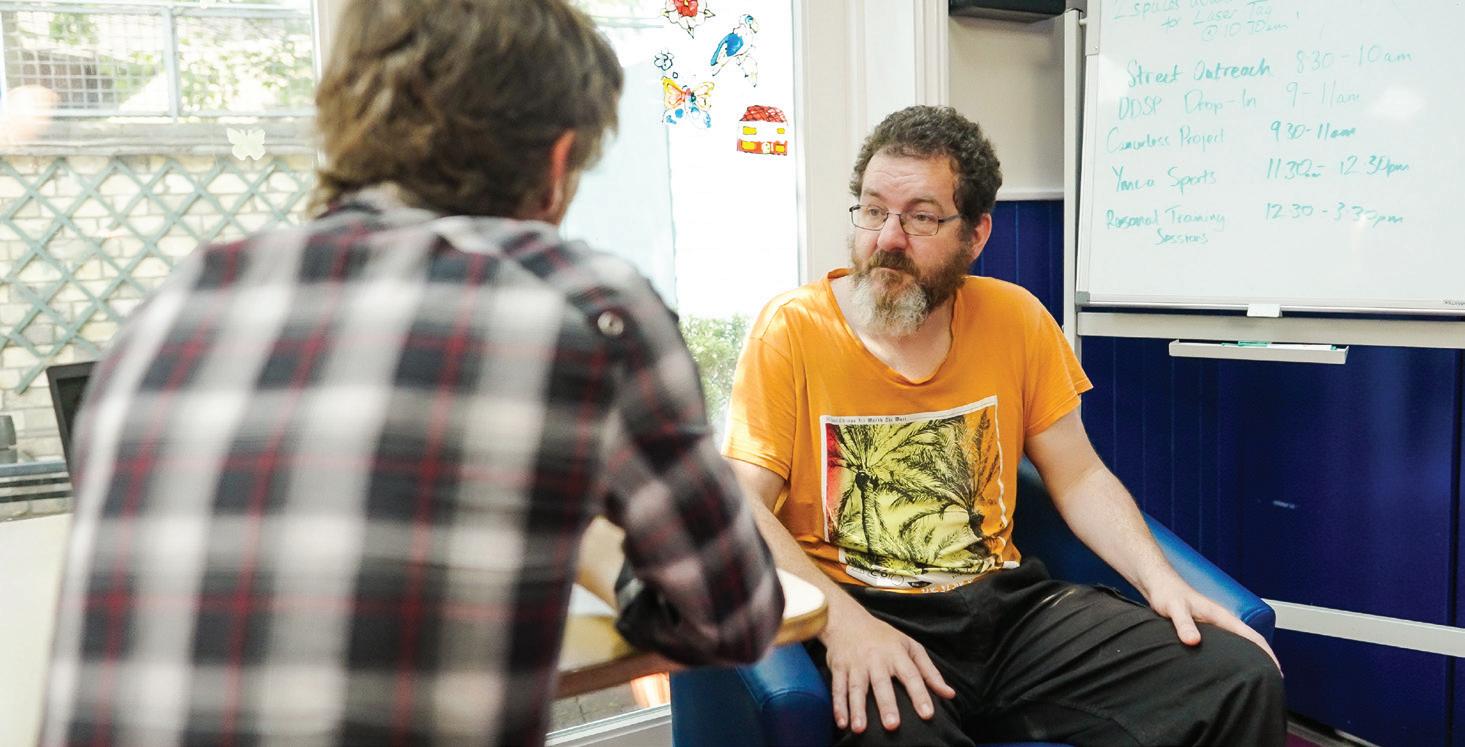
Health, Wellbeing and Counselling: Not having an address can make accessing medical care difficult and overwhelming. Our health and wellbeing service includes assisting with GP registrations, and accompanying people to medical appointments. In addition, at Wintercomfort, everyone can have 1:1 support with our qualified and experienced counsellors.
Money and debt advice: Many people lack basic financial knowledge and skills, making it difficult to manage their money effectively. Our experienced Money and Debt Advisors provide practical information and support on issues such as benefit entitlements, rent arrears, money management, debt, applying for poverty relief grants and repayment planning, to help people rebuild some financial stability and a more secure future.
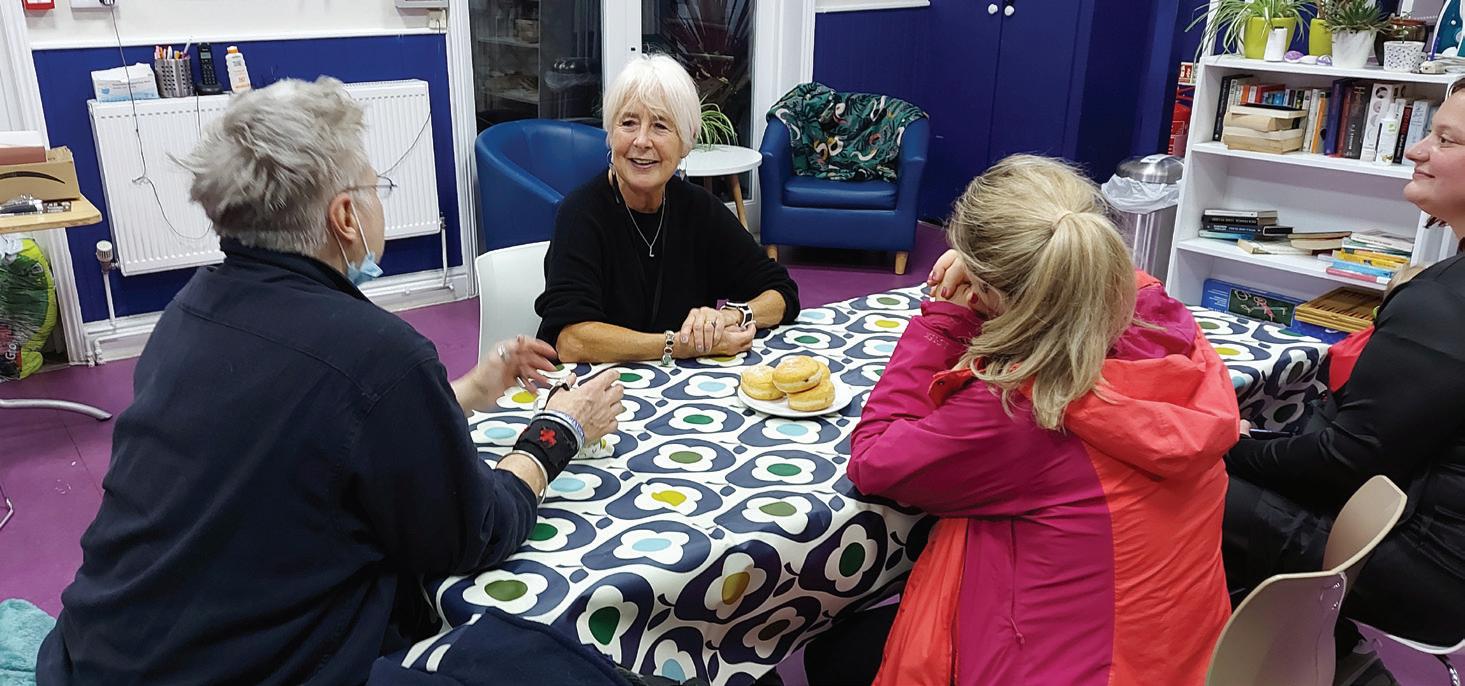

Employment and training:
Employment plays a crucial role in empowering people to rebuild their lives. It provides income, stability, independence, self-esteem, and social connections with colleagues. We help people with the vital training, education, and work experience opportunities needed to gain employment. Our social enterprise Overstream Clean and Garden (a professional cleaning and gardening business), provides training, and paid employment opportunities.
Welfare: Our welfare service includes a free daily breakfast and lunch for rough sleepers. There is daily access to showers, toiletries, laundry services, free clothing, and footwear, helping people to maintain a sense of dignity and self-respect.
The Wintercomfort Team
Cambridgeshire Law Society will host its Annual Gala Dinner and Legal Excellence Awards on Friday 19th April 2024 at King’s College, Cambridge. We will be offering a warm welcome to the legal community of Cambridgeshire as we join together to celebrate the collective and individual successes of CLS’ members.
We are honoured to announce the guest speaker will be Mark Evans, Deputy Vice-President of The Law Society of England and Wales.
We are delighted to confirm our platinum sponsor will be Rathbones again this year and we are hugely thankful for their continued support and generosity. We would also like to offer sincere thanks to all our LEA 2024 sponsors.
Nominations for the Legal Excellence Awards closed on Monday 4 March. The Awards are judged by an independent panel made up of professionals and business leaders and chaired by Colin Jones, HCR Hewitsons. Due to the high standard of entries our judging panel decided not to issue a shortlist this year.
Winners will be announced on the night!

★ TRAINEE OF THE YEAR
★ RISING STAR (< 10 PQE)




★ SENIOR LAWYER (> 10 PQE)
★ OUTSTANDING SUPPORT STAFF MEMBER
★ LIFETIME ACHIEVEMENT
FIRM AWARD
★ FIRM OF THE YEAR




★ PROPERTY LAW TEAM OF THE YEAR
★ BUSINESS LAW TEAM OF THE YEAR


★ PRIVATE CLIENT SERVICES TEAM OF THE YEAR
★ IN-HOUSE TEAM OF THE YEAR
★ LITIGATION TEAM OF THE YEAR
★ INTELLECTUAL PROPERTY/ IT LAW TEAM OF THE YEAR
★ EDI INITIATIVE TEAM OF THE YEAR










Raffle tickets will be sold on the night for the President’s nominated charity Wintercomfort. Raffle tickets are priced at £10.00 for a strip of 5 tickets. We will accept cash on the night and will have card readers available for those wishing to use this payment method.
Wintercomfort is an information, advice, training and support centre in Cambridge for those who are homeless or vulnerably housed. They open daily throughout the year, and encourage and empower the service users to overcome disadvantage and to make positive, long term changes to improve their lives. You can contact Wintercomfort here: info@wintercomfort.org.uk

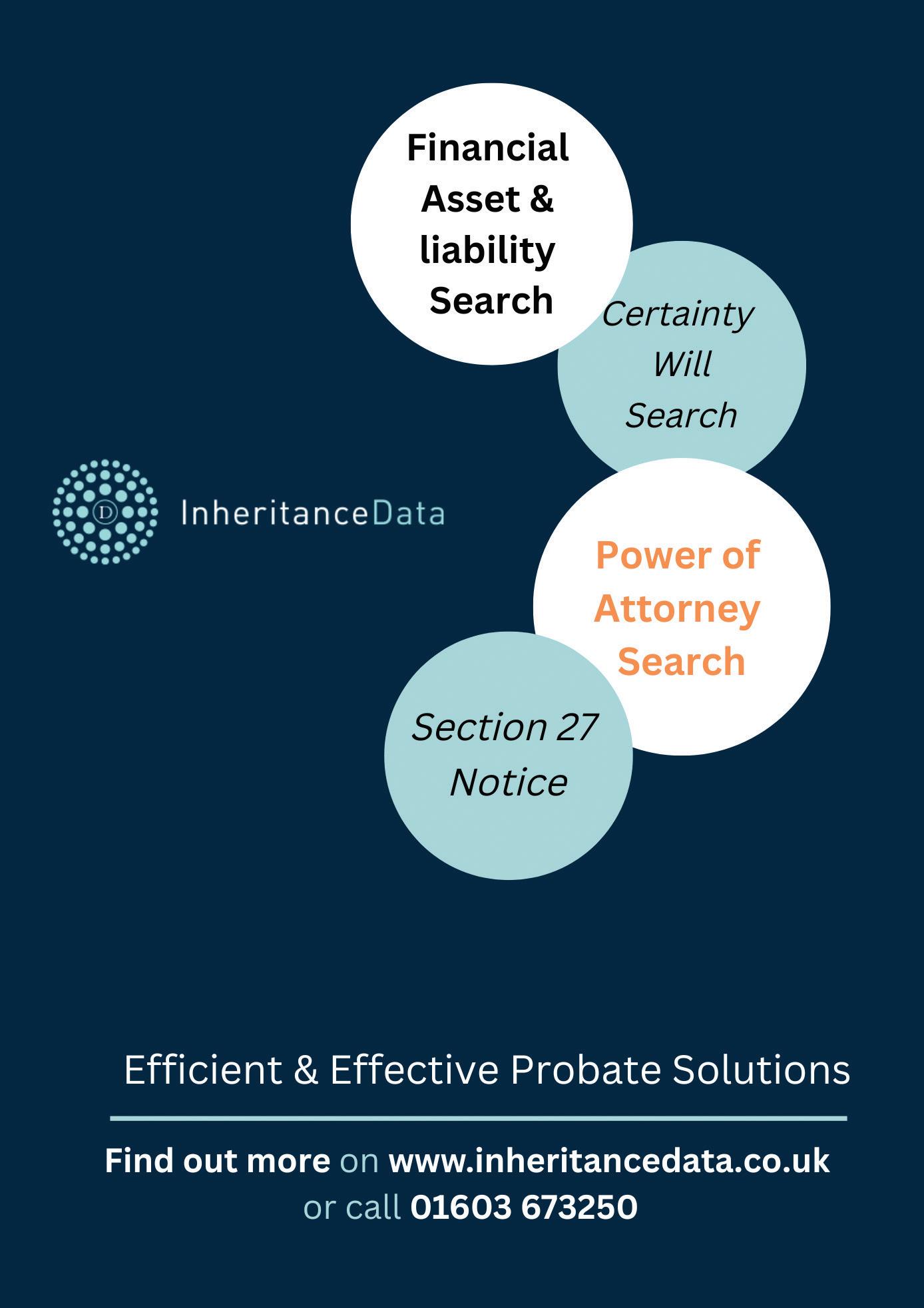

Buying a house can be a long and confusing process for many homebuyers. It can be hard for them to understand and interpret search results, but making sure your client has the full picture of the house they are buying is so important. Geodesys aims to help demystify and speed up the process for both you and your client. The CON29DW is the only drainage and water report on the market that gives your clients all the information they need and is approved by the Law Society. It is designed to provide information on the public sewage and water networks and how they are connected to a specific address.
So, what makes the CON29DW so unique?
Reliability:
You can trust that the data your client receives in a CON29DW is reliable, accurate and up to date. Geodesys gets the information in their report for customers in the Anglian Water region, straight from Anglian Water. Although alternative drainage and water reports are available, known as regulated or personal drainage and water reports, these do not use water company data and data quality may not be as good.
Efficiency:
Time is everything in the conveyancing industry. Geodesys understands that the time it takes to receive property information can cause delays and may even result in a transaction falling through. That’s why over 90% of their residential reports are delivered within 3 days of ordering, with many being delivered the same day.
Expert Support:
The Geodesys team of expert Customer Service Advisors are dedicated to providing support and answering any questions you, or your client, may have at every step of the way. Your confidence in property decisions is their priority.
The CON29DW also comes with robust terms and conditions to support conveyancers and their clients.
The terms and conditions include £10m liability cover and a commitment that in the unlikely event something isn’t right, we take responsibility for the information provided.
Whether you are acting for a residential or commercial property there is a CON29DW to help.
CON29DW Residential
l Answers to all 23 Law Society copyrighted questions on drainage and water.
l Includes two maps to illustrate the position of pipes.
l Includes five pages of homeowner information.
l Easy to navigate with interactive features.
CON29DW Commercial
l Comprises of 27 standard questions aligning with the CON29DW residential report.
l Is specifically designed for those purchasing or leasing land or commercial property and covers land or buildings used or proposed to be used for commercial activities.
l Enhanced T&Cs and Indemnity.
If you’re ready for the full picture, head over to the Geodesys website to get in touch or call on 0800 085 8050.
Their team is here to answer any questions you may have.


EWI Chief Executive Officer, Simon Berney-Edwards, shares his thoughts on 2023, a year where Expert Witnesses have continued to come under increasing scrutiny.
As. we come to the end of the year, I’m taking the opportunity to reflect on yet another interesting year for Expert Witnesses. Once again, there have been several high-profile cases which have reflected the best and worst in Expert Evidence. So here are my top ten takeaways from 2023.
1. Don’t get complacent
You may have many years of experience as an Expert Witness, but even the most experienced experts can get things wrong. Over the last year we have seen:
l Numerous reports submitted for assessment which have contained the wrong declarations and/or statement of truth.
l Examples of experts who were coerced by the legal team to do something that they felt wasn’t right, only to have this backfire in court.
l Examples of experts facing criticism in the witness box because they hadn’t addressed all the issues, evidence, or range of opinion.
So…….
2. Make sure you are up to date
Whilst the EWI will always cover key rule and regulation changes in our monthly newsletter, we have now started emailing members directly when key practice changes happen, or important guidance is issued.
However, why not take some time now to review your templates to make sure are using the correct declarations and statements of truth
We’ve also created a Report Checklist you can use to ensure every report is compliant and of good quality.
3. Ensure you make yourself aware of some of the recent changes
On that note, you are hopefully fully aware of the recent changes that came into force at the beginning of October.
l England and Wales - Criminal Procedure Rules - Change to Declaration
l England and Wales - Civil Procedure Rules - New rules governing Expert Evidence in the Intermediate Track
If you are not aware and you do work in these courts - it is important you familiarise yourself with these changes now.
4. Preparation is key to avoiding criticism
At this year’s Sir Michael Davies Lecture, the Honourable Mr Justice Williams, High Court judge and chair of The Family Justice Council Subcommittee on Experts, shared his views on the criticism of Experts in the courts.
His top tips to avoid it included:
l Remember the fundamentals of being an expert.
l Remain within your area of expertise.
l Comply with the relevant procedural codes.
l Don’t take on too much.
l Comply with timetables.
l Communicate any difficulties.
If you would like to hear more of what he had to say, you can access the recording.
5. Remain within your area of expertise
The judgment of Mrs Justice Bacon in Sycurio Ltd v PCI-Pal PLC & Anor [2023] EWHC 2161 (Pat) contains an important reminder for experts. During the course of the trial, it transpired that one of the expert witnesses (whose qualifications in their own field were not in doubt) had written a report and gave evidence on matters that were clearly outside their field of expertise. The result was that the judge was unable to accept their evidence on any matter that fell outside their core area of expertise.I am looking forward to hearing Mrs Justice Bacon’s views on this case at our Conference next year!
6. Review your opinion when necessary
If another Expert (whose opinion you rely on) changes their opinion, make sure you consider the implications for your opinion. A good example of this can be found in Benjamin Scarcliffe v Brampton Valley Group Ltd [2023] EWHC 1565(KB) which provides important lessons to be learned for all Expert Witnesses.
7. Take a moment to review your CV
Back in April, I reviewed the case of Watts v Watts [2023] EWHC 679 (Ch) This contains several learning points for experts. But one of the key issues affecting the credibility of the expert was
that they had written nothing within their CV to demonstrate that they possessed the specific expertise relevant to the case.
Remember your CV needs to reflect why you can act as an expert in the case at hand.
Need some help? Why not attend our CV writing for Expert Witnesses webinar on the 24th January.
8. Consider how you might deal with dishonesty
The case of Muyepa v MOD highlighted the issues faced by Experts when dealing with fundamental dishonesty. Back in January, David Stothard, Managing Director at MAPS Medical, examined that case which was ultimately dismissed as a result of the claimant’s dishonesty.
He concluded by inviting experts to spend some time considering the evidence presented by the medical experts in this case set out in the judgment (paragraphs 167 to 278 inclusive), whether they fall within your area of expertise or not and reflect on how you might have presented your evidence had you been involved in the case.
9. Maintain your independence in discussions of Experts
There has been continued discussion during the year of the importance of remaining completely independent during meetings between Experts and ensuring experts do not involve their legal teams in the drafting of the joint statement or act on behalf of the legal team during the discussion. This was further clarified by new guidance from the King’s Bench division that clearly states this.
10. Maintain your credibility
Hopefully this will be clear by this point in this article, but some of the most easily rectifiable mistakes will seriously affect your credibility. So, as it is the end of the year, why not take some time to reflect on your practice and think about what you can do to ensure you retain your credibility in 2024.
And with that I wish you every success for the New Year.

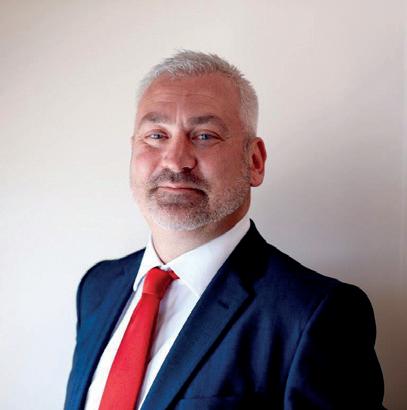

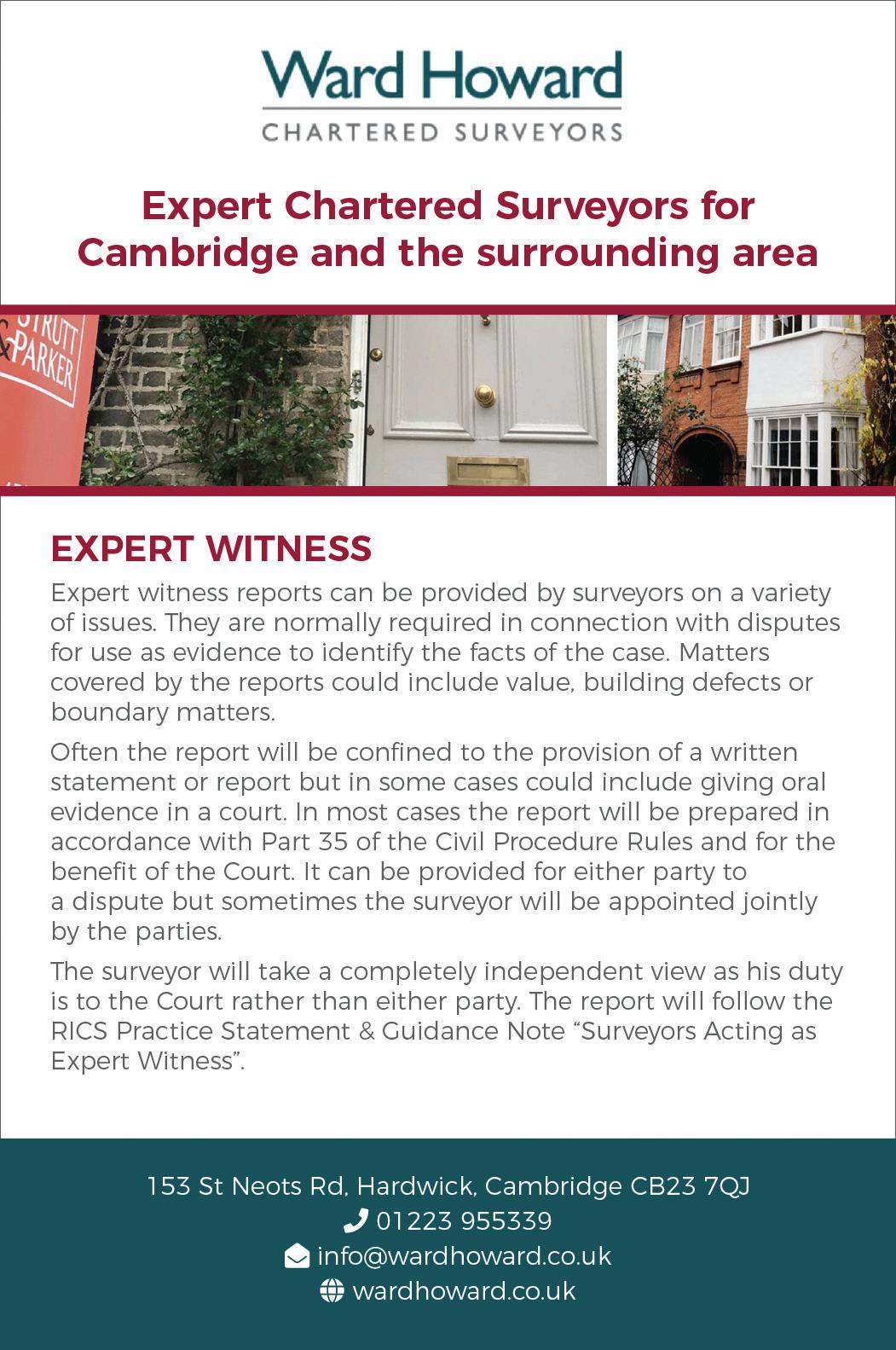









Dr. David Mangion is currently active in clinical work. He works as a Stroke Physician, responsible for the clinical care of people with known or suspected cerebrovascular disease, including both inpatient and outpatient care. He has had long and extensive experience in Geriatric Medicine and General (Internal) Medicine and continues to practice in these fields.





His areas of expertise are in the fields of Stroke Medicine, Geriatric Medicine, and General (Internal) Medicine.
Dr Mangion is committed to ongoing professional development in his fields of expertise.


As all Deputies and Court of Protection specialists will know, applying for a Statutory Will can be a complicated and time consuming matter. As part of the duty of care, and requirements for making a Statutory Will, it is necessary to hold a copy of the person’s existing Will, a draft of the proposed Will, details of their family, assets and income, as well as medical evidence of their incapacity in order to provide these to the court, together with any other evidence the court requires.
Anyone who would be potentially affected by the application (perhaps a beneficiary who would lose out, for example) will be a party to the court proceedings. Finders International specialises in researching P's next of kin, providing a verified family tree and a full report of the required findings to support your Application to Court.
Here are some of the ways in which a probate genealogist can help:
1. Verifying Family Tree Information: We can conduct thorough research to trace and identify all of P’s next of kin according to intestacy rules. We can do so with little or no contact with the family, at the authority of the Deputy, and ensure that our research is backed by documentary evidence.
The court or the deputy may receive information about P’s family from various sources, including family members. This information can often be inaccurate; therefore, we can verify the accuracy of any information already held, ensuring that the family tree is comprehensive and reliable.
2. Resolving Complex Family Scenarios:
In cases where the family structure is complex or unconventional, a probate genealogist can provide expertise in unravelling intricate family scenarios. This includes stepsiblings, half-siblings, or other unique family relationships. With modern families spread across the globe our international expertise can assist in even the most complicated of family make ups, and wherever people may live.
3. Ensuring you are aware of P’s existing Will & financial assets
Ensuring you know of any Will P may
have made in the past is crucial to this process. Finders can assist by conducting a comprehensive Will Search to identify any Will that may have been made before P’s affairs were managed under Deputyship Order. Additionally, a full missing asset search can also be conducted for P, ensuring that you are aware of the full financial picture.
4. Providing Evidence for the Court:
The findings of a probate genealogist can be presented as evidence to the Court of Protection. This documentation helps validate the accuracy of the family tree and ensures the correct family members are notified of the process.
A question that we are often asked is, ‘How do you do it?’ Many who have researched their own family tree will know that birth, marriage, and death records are essential in confirming findings. At Finders International, we also have in-house databases, local representatives, and a network of international researchers to assist with our research. Each case comes with its challenges, including children born out of wedlock, overseas research and common surnames. Our team work on cases with these elements on a daily basis and carry out research for Court of Protection teams all over the country, so have the experience to overcome these research hurdles.
At the point of our instruction, the only information held was that P had a deceased partner and one living cousin.
Our research first confirmed that P had no children and was an only child.
Extensive research using all available genealogical resources confirmed that P had no living Paternal family. However, we confirmed that P’s maternal family was larger than expected.
During the course of our research, we identified 6 maternal aunts and uncles who left descendants, identifying a number of living cousins.
As part of our verification process, we obtained birth, marriage and death certificates and identified current addresses for all P’s next of kin. This information was provided to the Deputy in an easily digestible family tree and report, with appropriate supporting documentation. In this case, at the Deputy’s request, no contact was made with the family before our report was submitted.
Our involvement in this case was key, as we identified three more family members in addition to the cousin previously known. This full picture enabled the Deputy to proceed with the Statutory Will Application and notify all the correct next of kin.
Finders International can assist predeputyship application if the court requires you to contact family, friends or neighbours of P. We can also assist with Statutory Will Application research, Missing Will and Assets searches, Administrator searches and Unoccupied Property Insurance.
If you have a case like the above or have any questions regarding our services, contact us today at quotes@findersinternational.co.uk, call 0800 085 8796 or visit our website www.findersinternational.co.uk.

On 12th March, charity sector representatives delivered evidence in Parliament to demonstrate the significant impact of probate delays on charities in an official hearing session that forms part of the Justice Committee’s Probate Inquiry.
Submitting evidence to the crossparty committee of MPs, the three panellists highlighted how delays at probate affect both beneficiaries and charities, particularly those that are reliant on funding from gifts in Wills. Sector representatives included:
■ Alex McDowell, Vice Chair of Remember A Charity and Director of Fundraising at The Duke of Edinburgh’s Award
■ Angela Morrison, Chief Operating Officer, Cancer Research UK
■ Dave Hawes, Director of Finance & Infrastructure, Devon Air Ambulance Trust and a Board member of the Institute of Legacy Management (ILM).
During the session, sector representatives welcomed recent improvements in probate output and opportunities to collaborate with HM Courts and Tribunals Service (HMCTS), suggesting improvements for long term change, which include:
Appropriate resourcing for HM Courts and Tribunals Service (HMCTS), enabling probate teams to upscale their services and meet rising demand as death rates climb, reflecting too on the growth of charitable gifts in Wills.
More publicly available data on the scale and scope of the backlog and ongoing workflow, including ‘stopped’ estates, to ensure that charities have the information needed to inform their forecasting.
Continued collaboration with the charity sector to ensure that any changes or proposed improvements reflect charities’ needs and have no unintended consequences on charities.
While the focus of the hearing was on charities and how their services,
forecasting ability and wider finances are impacted by the probate system, the panellists reflected too on the profound impact on grieving families, many of which turn to charities for support.
Speaking after the event, Alex McDowell, Vice Chair of Remember A Charity and Director of Fundraising at the Duke of Edinburgh’s Award, said:
“Charities are increasingly reliant on income from gifts in Wills, and any delays or problems at probate can have a significant impact not only on funding for vital charitable services and beneficiaries, but on charities’ ability to forecast their income and budget for the future.
“We’ve seen probate output levels improve significantly in recent months and that’s the chink of light that charities have been waiting for to enable them to shore up their support for beneficiaries at a time when demand for charitable services has never been higher. And now, for charities to be able to continue delivering such critical services, it is vital that the Probate Registry is equipped and resourced to manage the increasing number of cases at probate, without compromising on quality.”
Dave Hawes, Director of Finance & Infrastructure, Devon Air Ambulance Trust and a Board member of the Institute of Legacy Management (ILM), said:
“This was a welcome opportunity to explain why and how probate delays have impacted charities of all sizes right across the sector, which I’ve seen both as a director of Devon Air Ambulance and as a Board member of ILM.
“The probate service is crucial to ensure that people’s last wishes are followed and it’s important that HMCTS is able to support this in a timely manner both now and into the future.”
Remember A Charity and the Institute of Legacy Management have been working closely with HMCTS as part of the Probate Service Users Working Group, ensuring the impact of delays on charities is represented in key discussions and factored into ongoing service developments.
McDowell added: “HMCTS has already committed to several steps to improve the probate ecosystem for charities, which includes provision of more information on cases in the system and an indicator to identify charitable estates in the system. We are grateful to the team for their continued support and recognition of just how crucial the probate service is for charities.”
Gifts in Wills currently raise around £4 billion* for good causes annually, funding vital charitable services for charities and community-based organisations across the country.
The Committee launched the Probate Inquiry in November 2023 amid reports the Probate Registry has been experiencing significant delays. The Inquiry is taking evidence on capacity, resources and delays across the probate service and the impact of digitisation and centralisation, including the effectiveness of the online probate portal. It is looking at people’s experiences of applying for probate including how the administration of probate could be improved.

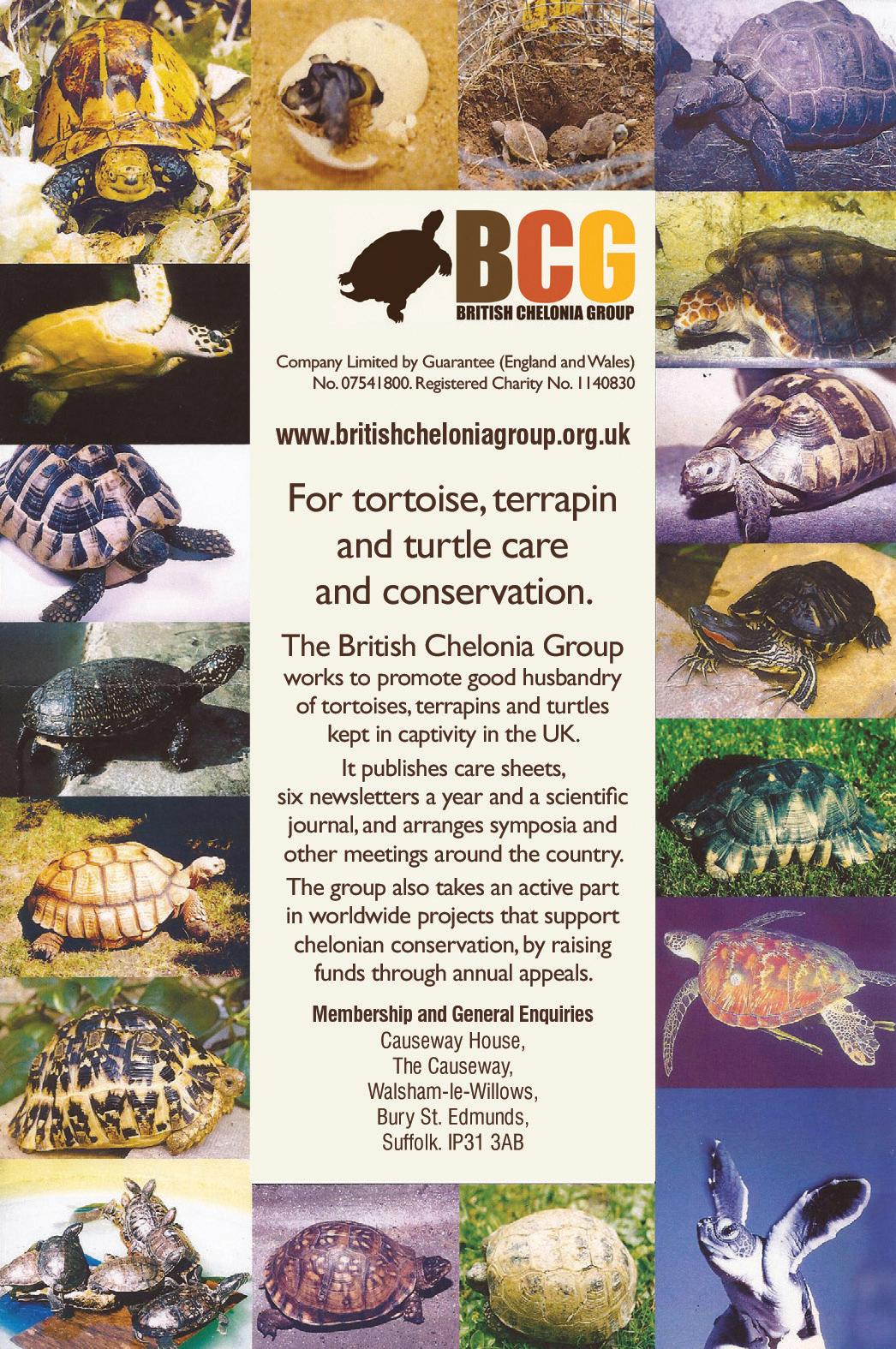
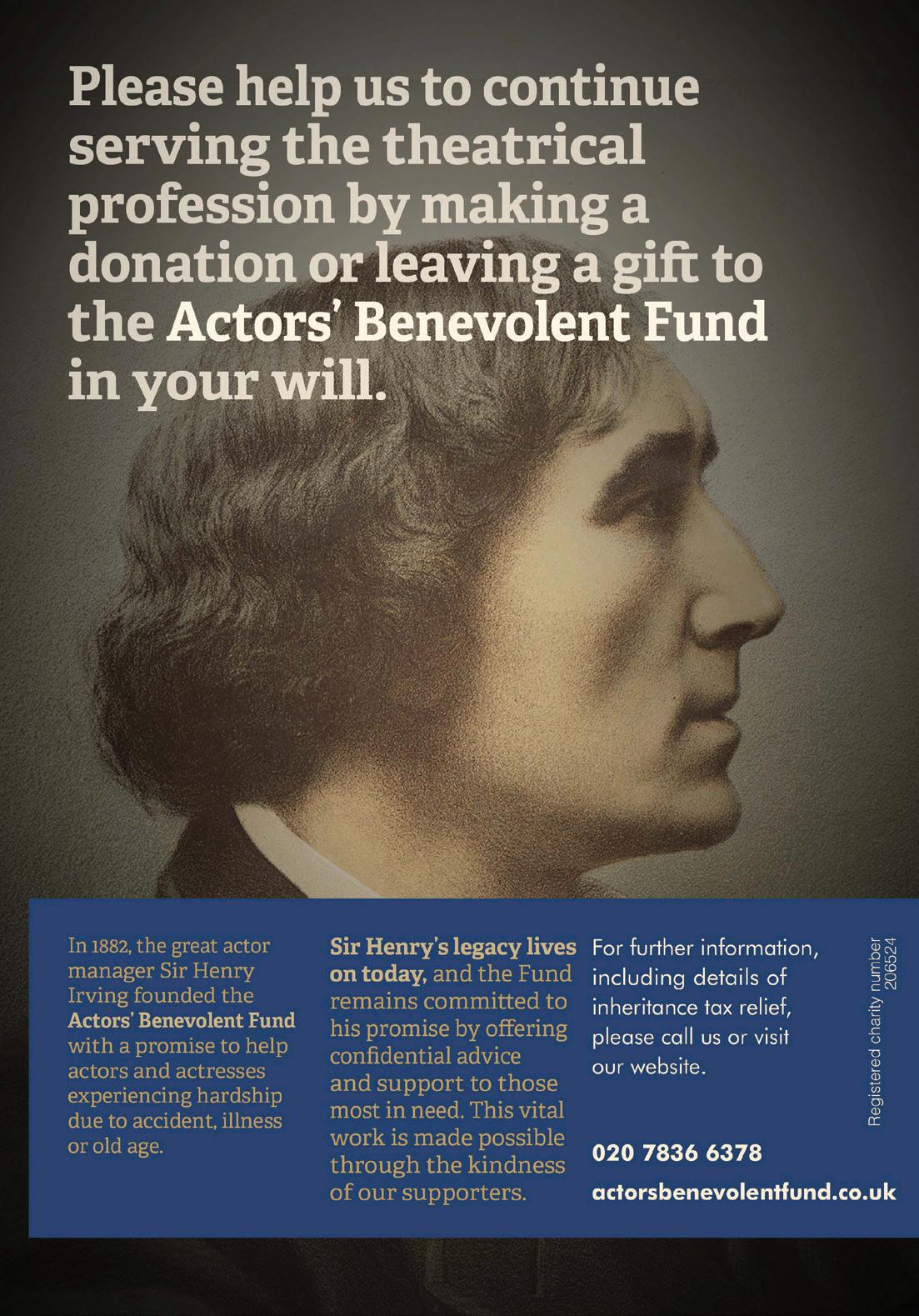

Bullying remains a very common concern within the legal sector, and in 2023 there was an alarming 95% increase in the number of people contacting LawCare for support because of bullying, harassment or discrimination at work.
People who got in touch often said that they thought that bullying would never happen to them, and that they didn’t feel able to speak out about it once it had. One trainee solicitor who was being bullied felt that they had to ‘stick it out’ until the end of their training contract. Another legal professional said that caring responsibilities and financial pressures made them feel trapped in their role.
Yet bullying is much more than just a problem for individuals, it also has a detrimental effect on legal organisations and the sector as a whole.
Bullying in the legal sector is not a new problem; it has been around for decades. So, is bullying just a price we pay for working in such a competitive and demanding profession? We don’t think so.
Why does bullying thrive in the legal workplace?
The hierarchical and fast paced nature of working in the law can create an environment where bullying behaviours can thrive, particularly when bullying behaviour is not challenged.
LawCare’s Life in the Law research showed that people working in the legal sector struggle with burnout, lack of autonomy at work, poor psychological safety, and very high workloads. These can create a stressful work environment where bullying can flourish. This situation is exacerbated by managers who often lack the skills and time to manage conflicts when they arise. They avoid confrontation, so issues escalate, and bullying persists unchallenged.
The impact of bullying
Bullying takes many forms, from verbal abuse and micro-management to setting unrealistic deadlines and systematic exclusion. The effects of workplace bullying can be far-reaching; it impacts the person being bullied, the rest of the organisation and the legal sector as a whole.
Bullying has a damaging impact on people’s lives and performance at
work. Many people experience physical symptoms, such as stress, anxiety, depression, panic attacks and even PTSD. They may also become isolated as they withdraw from social groups as a result of the bullying. One person who contacted LawCare for support said that bullying impacted their confidence, sleep and finances. Financial hardship is particularly common where people feel they have no choice but to leave the organisation and sometimes even leave their careers.
Organisations where people are being bullied pay a very high price. Bullying creates a toxic work environment that can decrease productivity, lowers morale, and increases absenteeism. They may have high turnover rates where people leave, leading to a loss of valuable staff and increased recruitment and training costs. Additionally, organisations which don’t tackle bullying face a greater risk of regulatory scrutiny, as bullying can undermine the ethical standards and professionalism expected of them.
The legal sector as whole is also compromised by bullying, it can harm professional relationships between colleagues, opposing lawyers and within the court system. This can lead to less collaboration and undermining of client trust, who may have their confidence eroded in the profession when they witness bullying behaviour between legal professionals. A reputation for bullying can spread beyond the legal community and reach clients, potential clients, and the general public.
How do we change this?
Addressing bullying in the workplace requires a collective effort from everyone within the legal sector to foster a culture of respect, inclusivity, and openness.
You can help protect colleagues who are being bullied and contribute to cultural change in your organisation and in the wider legal sector. Here are a few ways you can make a difference:
l Make sure you can recognise bullying behaviours - be aware that it can be more subtle than name calling or intimidation.
l If you know someone who is being bullied, reach out to them in private. Let them know that you acknowledge what they are experiencing, and that it is not acceptable. Encourage them to document the incidents and signpost
them to organisations, including LawCare and the National Bullying helpline, who can offer them support.
l Talk about bullying with your colleagues and leadership as this helps to break down stigma. Ask for training on workplace bullying, communication, and conflict resolution.
Furthermore, leadership within legal firms and organisations must take a proactive stance to prevent bullying happening in the first place; bullying costs money and damages reputation, and there is also now the increased risk of regulatory sanctions. They must do much more than just have polices and reporting mechanisms. Leaders must publicly address the issue of bullying, take a clear stand against it, and actively promote a culture of respect. This could include:
l Talking about bullying at work and having a culture of openness.
l Making sure that people who are known bullies are not tolerated or rewarded, even if they are bringing in a lot of work and are otherwise successful.
l Including behavioural aspects of management in the appraisal process.
l Having regular training sessions about the signs of bullying, its impacts, and the importance of maintaining a respectful workplace.
In conclusion, creating healthier, more inclusive workplaces where bullying is not tolerated is essential for the long-term sustainability and integrity of the legal sector. It is crucial that all members of the legal community, from paralegals to senior partners, are part of this collective effort.
If you would like to know more LawCare has lots of information and resources about bullying, including 10 practical steps for managers on workplace bullying
If you are being bullied, you can talk to LawCare about your situation and how you are feeling. It can a be a good way to talk through your options. Call LawCare on: 0800 279 6888, email support@ lawcare.org.uk or get in touch using the online chat on www.lawcare.org.uk

Unlocking and Preserving Value in Distressed Businesses 2nd edition
By Alan Tilley ISBN 978 1 78742 982 6 www.globelawandbusiness.com
An appreciation by Elizabeth Robson Taylor MA of Richmond Green
Chambers and Phillip Taylor MBE, Head of Chambers, Reviews Editor, “The Barrister”, and Mediator
If you are a lawyer with a corporate client - or clients - facing financial distress and ultimately insolvency, you need this book, published recently by Globe Law and Business.
Note the usefully descriptive subtitle: ‘Unlocking and Preserving Value in Distressed Businesses’. This says it all, you may say, but as its processes are linked to a complex area of law, there is a lot more to be said, especially when multijurisdictional complications emerge. With lengthy and detailed experience in this specialised area of consultancy, author Alan Tilley provides a broad range of authoritative advice, aimed
specifically at those who are confronted with the undeniably challenging task of advising and managing companies teetering on the sharp edge of insolvency, with its intimidating spectrum of possible consequences.
The book and the wealth of advice therein is aimed primarily at those who find themselves in the role of turnaround manager. Such a role, as the author explains ‘usually involves operating in an executive rather than a consultative role’ and as such, ‘exposes the professional to the risks of personal liability.’ You have been warned. However, no need to despair - as Tilley adds that operating through a limited liability entity, with a properly constructed engagement contract reduces the risks. Proper professional performance is the ultimate guarantee of risk avoidance. Anyone in the legal profession or accountancy and/or financial services, might well wonder how this increasingly obvious need for ‘turnaround management’ got started and whether or not it is proving itself effective. The author’s positive answer is that turnaround management is becoming ‘increasingly recognized as an important part of business’ and that the understanding of its obvious benefits
is growing. Tilley is confident that the concept has more than likely evolved as a result of the influence of Chapter 11 of the United States Bankruptcy Code of 1970, which is based on the concept of ‘giving entrepreneurs a second chance’ primarily by creating the concept, so called, of ‘debtor-in-possession’ (DIP) - usually by means of a restructuring plan while the company is protected from creditors. Better results for shareholders certainly loom large here as a distinct possibility. Although a complex subject, ‘turnaround management’ is explained in this book with admirable clarity, covering as it does, the risks involved, as well as the potential rewards. Based in the author’s 40-plus years of experience in this field, the consultancy, advice, and guidance contained in this compact volume is high-value indeed. Note too, the handy appendix which contains over 20 pages of useful guidelines and policy recommendations.
With its international orientation, as well as its straightforward advice, this book should be considered as an essential purchase for business and law professionals worldwide.
The date of publication of this hardback second edition from Globe Law is cited as December 2023.
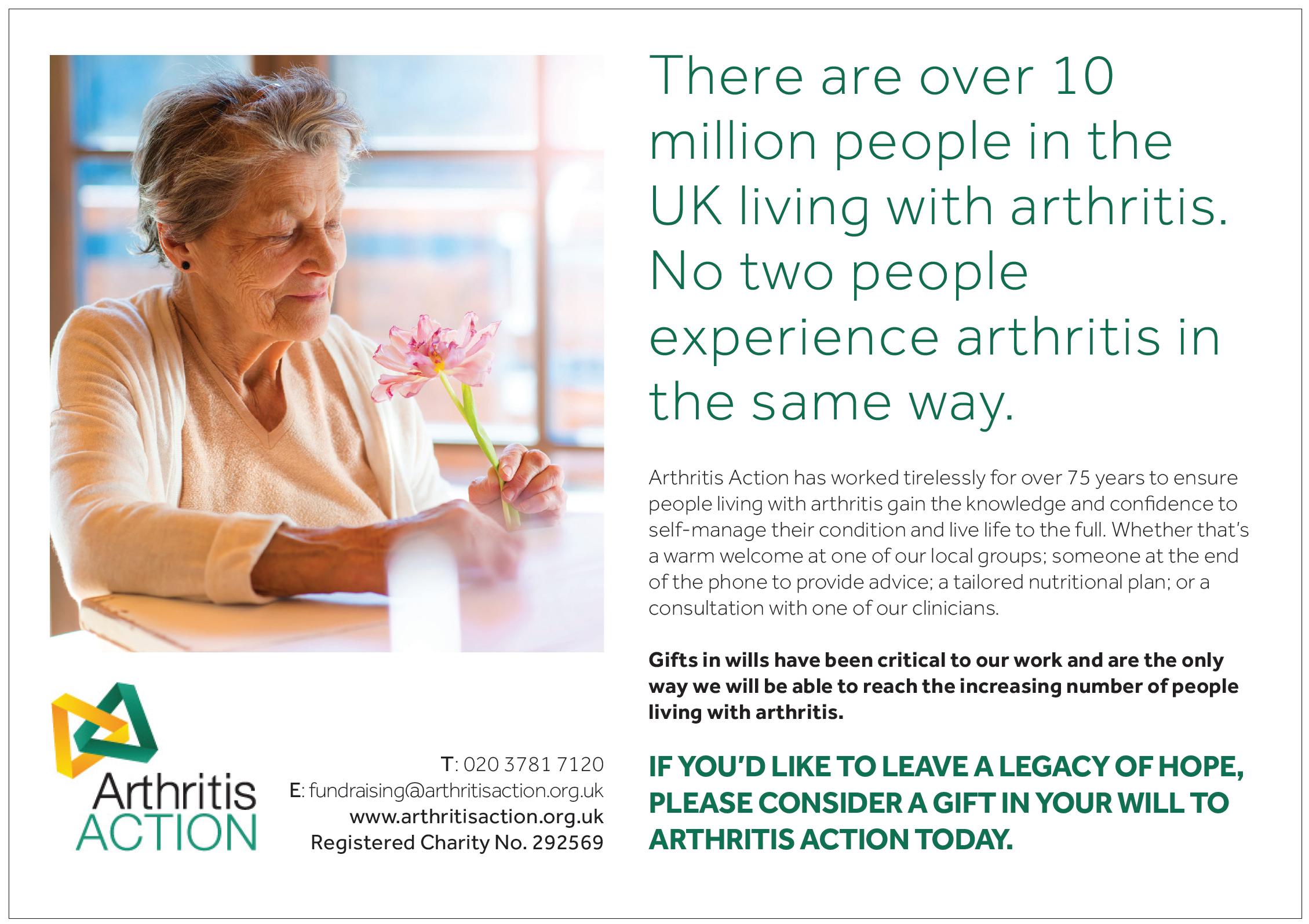



This enables the child to become a UK citizen and hence for the mother to gain residency. It appears that despite the rules banning the practice, these “fathers” are advertising on social media and are using elaborate and convincing backstories, which can only get more convoluted with use of AI. Social media posts involve both men advertising themselves as “fake fathers” and women searching for a British “citizenship daddy”.
Falsification of a birth certificate is a criminal offence 2 yet the practice continues, with rare examples of prosecutions 3 . As evidence of paternity, sufficient checks are required and the technology to do this, via a DNA test, is both readily available and tried and tested 4
Since the Home Office has not published data on the number of visas given to non UK parents of British children, the scale of this fraud is not publicly known. However, it is the case that if an illegal migrant female gives birth in the UK to a child who has either
An investigation by the BBC in May last year1 revealed that there are UK men who are posing as fathers for migrant women and taking fees of up to £10,000 for falsely adding their names to birth certificates.
a) been fathered by either a man with indefinite leave to remain or b) is a British citizen, then the child will be British by birth. This does the correct thing of course, it protects the child, but the consequence is that the mother can apply for a family visa and hence citizenship.
The BBC reported that this practice has been going on for many years, including communities from Bangladesh, India, Nigeria, Pakistan, Sri Lanka and Vietnam.
In these cases, where the “red flag” is raised, there is a clear requirement for a DNA paternity test. For example, a red flag would be a British child with one British parent who is named on the birth certificate and a non-British mother who is without a visa. Unfortunately, there is no legal requirement in the UK for a DNA test when an application is made for a child’s passport or when registering the birth. There is a strong case for change.
In the cases of unmarried parents, the responsibility for registering the birth
of a child lies with the mother and only the mother has parental responsibility. If both “parents” are present at the registration, then there is the situation where the fake father or the citizenship daddy will have parental responsibility for the child. Falsification aside, once the visa/citizenship process is complete, the mother may claim “genuine mistake” and via a DNA test, apply to have the fake father or citizenship daddy removed from the birth certificate. Equally, should the biological father appear, he may also apply for an amendment, but this would not give him parental responsibility unless a court order was in place or unless the mother agreed.
A DNA test for paternity either excludes a man from biological parentage with 100% certainty or determines that he is the biological father. The latter, an “inclusion” is usually given as a probability of paternity and will give a statistic in excess of 99.99%, especially of we have been able to test the mother. Of course, paternity DNA tests of this nature should be conducted by an accredited

company, such as our own, which is on the Ministry of Justice list as “a body that may carry out parentage tests directed by the civil courts of England and Wales under section 20 of the Family Law Reform Act 1969” 5
By using such a company for these tests, you can be assured that as far as is possible, checks are carried out to establish identity and facts, plus we control the sample collection, via use of one of our registered samplers and adherence to the legal procedure for collecting samples for DNA testing 6 . This is important because there is a chain of custody which allows reliance on the DNA testing data.
The BBC investigation into birth certificate manipulation has provided
illumination into circumstances which are disconcerting and indeed, helps makes the case for more accredited DNA testing to be used in immigration applications.
1UK men offered £10K to pose as dads in visa scam, BBC investigation finds - BBC News
2Section 4 of the Perjury Act 1911
3Mum jailed for lying about the dad of her baby on birth certificate to spite exboyfriend - Wales Online
4www.https://dadcheckgold.com
5dadcheck® is UKAS accredited testing laboratory No. 2743.
6Blood Tests (Evidence of Paternity) Regulations 1971 (SI 1971/1861), as amended Blood Tests (Evidence of Paternity) (Amendment) Regulations 2015.
About the author:
Neil Sullivan, BSc, MBA (DIC), LLM, PhD is General Manager, of Complement Genomics Ltd (trading as dadcheck®gold).
The latter is a company accredited by the Ministry of Justice as “A body that may carry out parentage tests as directed by the civil courts in England and Wales under section 20 of the Family Law Reform Act 1969” and by virtue of directly running laboratory services which meet the stringent and internationally recognised ISO/IEC 17025 standard.
Please see: dadcheckgold.com
Tel: 0191 543 6334
e-mail: sales@dadcheckgold.com

While traditionally perceived by many as slow and antiquated, private client practice is, in reality, an area of law that is required to move quickly, with an increasing number of practitioners being asked to serve a broadening section of society and their evolving needs. Society and the world we live in are changing at a rapid pace, and so must the technology practitioners use and the service they deliver, in order to stay relevant.
Technology is revolutionising the delivery of estate planning, probate, lifetime planning and will preparation services by:
Providing a single, secure, and searchable electronic matter is central to streamlining private client practice. It offers one fully searchable digital file containing all data, documents, and emails related to that matter, easily accessible within the cloud. Granting practitioners the ability to access up-to-date matter information and documentation from any location streamlines client service, enhances collaboration, and minimises duplication of work, errors, or inaccuracies.
An additional benefit of having a single digital matter file with up-todate client and matter information is the ability to generate and complete documents with ease, by merging the captured details into letter templates and court and government forms quickly and consistently.
Leading legal software providers are offering intuitive technology that simplifies the day-to-day life of a private client practitioner. They are developing innovative productivity tools to complete time-consuming tasks, such as estate account and inheritance tax automation. Technology streamlines the collection of estate data and the generation of IHT forms, applying upto-date legal rates and calculations in line with updates to legislation and cost changes.
Critical to the profession in terms of technology is highly automated specialist will writing software. Such software includes up-to-date clauses maintained by experts, enabling practitioners to create both simple and complex wills, as well as lasting powers of attorney, with ease. The fast and accurate production of wills and LPAs is pivotal to a successful private client practice, improving client service and saving valuable practitioner time.
We all know that practice management software is pivotal to the success of a private client practice, but how the software integrates with other technology to add value to private client
practitioners is something to consider. Tools to further streamline processes might include verification of identity and funds, document collaboration, time recording, online payment and eSignatures.
As practitioners face growing and diverse clientele with ever-changing needs, adaptation is crucial. This dynamic shifts in society necessitates innovative technology in order to remain relevant, revolutionising estate planning, probate, lifetime planning, and will preparation services.
For more information, please visit leapestates.co.uk or follow LEAP Estates on LinkedIn.

LEAP Estates occupies a unique position in the legal software market, providing specialist software for probate solicitors and estate planners.
With powerful features and functionality, the innovative solution provides everything you need to manage your client’s wills, LPAs and estates efficiently, including case management, accounting, document assembly and management, will building and legal publishing assets in one integrated cloud solution.
For more information, please visit www.leapestates.co.uk or follow LEAP Estates on LinkedIn.
Michael Bull/ Mandy Brooks michael@brookscomm.com
mandy@brookscomm.com

